

Another Rosh Hashanah and Yom Kippur will come and go. Fraudster shysters - Shlomo "crocodile tears" Mandel, and Lipa "Shmeckle" Margulies will once again attempt to forget about the lifelong death they inflicted on so many Jewish souls. Time does not heal all wounds. It does not! Especially - when child molesters continue to roam the hallways of schools with the full accord and support of "Roshei Yeshivot" who couldn't care less about kids being abused under their watch, and are now going into yom hadin with the same disgusting mindset.
Perhaps these rug businessmen think the dirt they created is tucked safely underneath. Imaginably they think the bigger the carpet the better the cover-up. What they fail to grasp is the sewage system is grossly backed up, and is in desperate need of a rotor-rooter technician to clean up all the filth and gook.
While the Torah cries in justifiable objection to its contamination - survivors and victims are stirred back to flashbacks and memories they'd soon rather forget. Only this is not a nightmare they can wake out of. They have been spit on, trampled on, and left for dead. They are strong and courageous. The "Rabbis" thought nobody would hear their cries. They were wrong. DEAD WRONG!
Ushamnu, Bugadnu, Guzalnu.... Pound your fists against your hearts a million times "Rabbis." The bottom line is there is no mechila without first admitting your crimes and rectifying the wrongs. Your prayers are worthless! You did not beg for forgiveness from your victims. You have not changed your wicked ways. You have NOT done Tshuva!
You are evil, depraved, and damnable. Your priorities are an insult to morality. You worry first about image and last about righteousness. You see a bleeding child and pour salt on his wounds. Instead of a Jew going to a lipa Schmletzer concert, you now cause them to leave or question their religion. A kosher cell phone and pizza with a fork and knife is plausible and commendable by your standards, but child abuse takes a seat in back of the bus. My how far you have fallen! No wonder so many nashamas go off the derech. YOU ARE THE SOLE REASON. It's alright to silently betray those you have an obligation to protect; so long as child molesters have a parnassah and their children are able to find a shidduch one day. You are insane! You are vicious scum of the earth! You are deplorable! Shame on you! Shame on you! Shame on you!
The Ribono Shel Olam will reach a verdict. It's been a scandalous year. A year where the kool-aid drinkers showed their true colors. It has been a year of great fight and achievement for victims of sexual abuse and their advocates. May this New Year bring much success and light on kal yisrael. We look forward!
Kesiva Vechasima Tova!
EM




































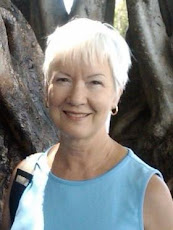



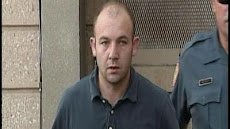









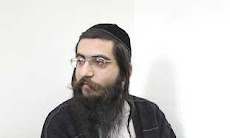





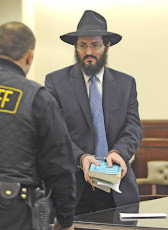














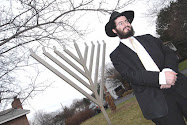




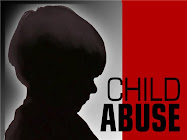













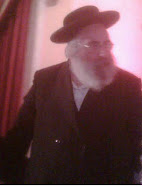



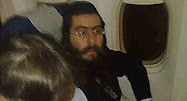




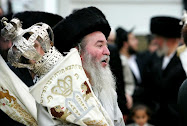


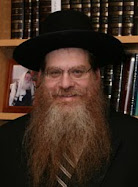












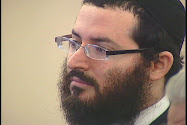
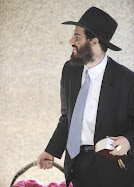
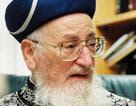









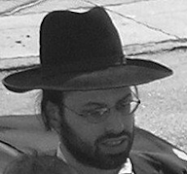

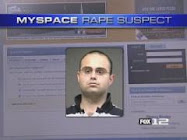









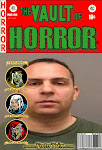












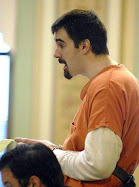


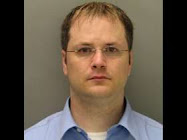


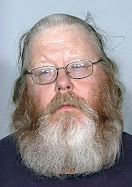

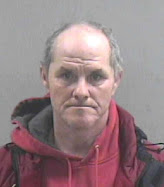















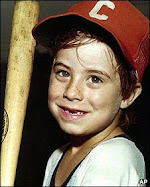

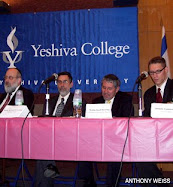

















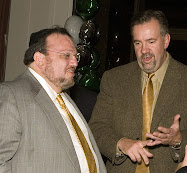
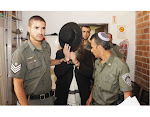



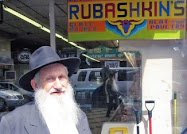


























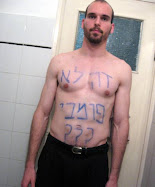
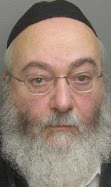












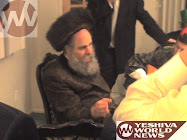









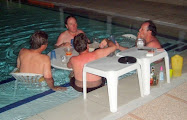

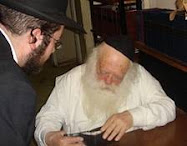

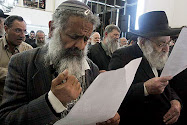
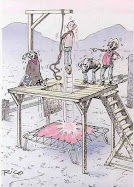
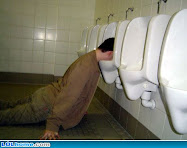



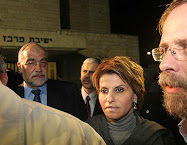
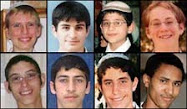
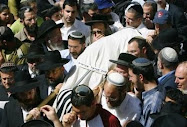
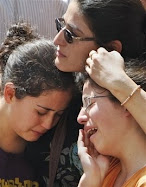
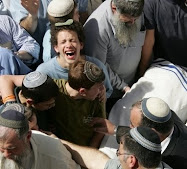
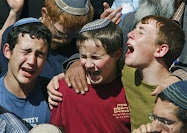











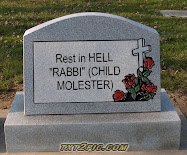








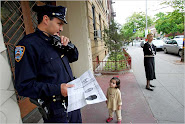















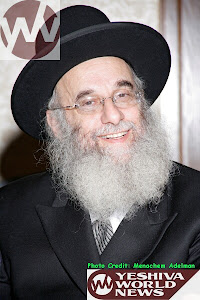


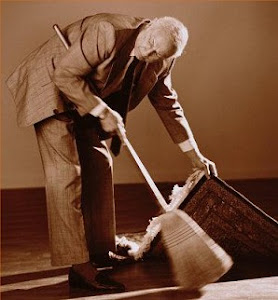


















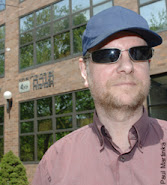


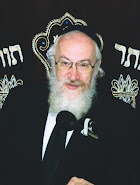









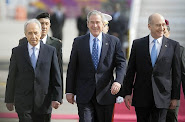
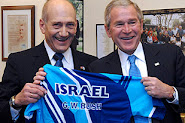
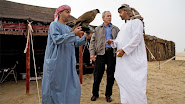


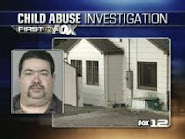
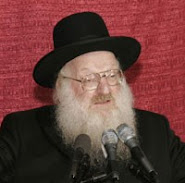

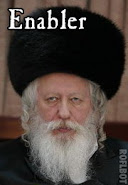



















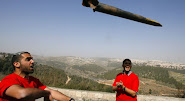
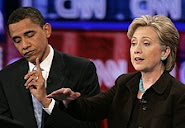


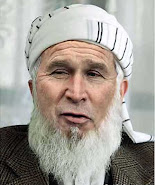









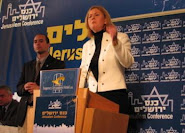


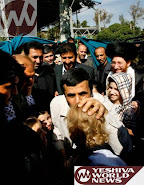
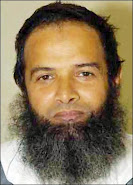


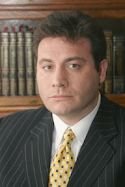


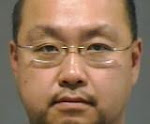
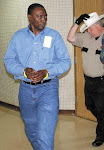

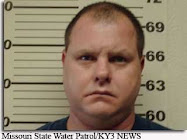



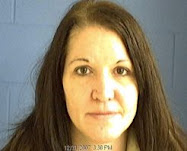


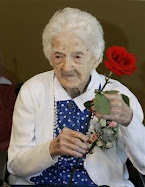

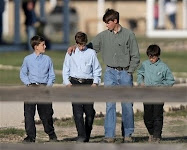



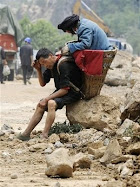



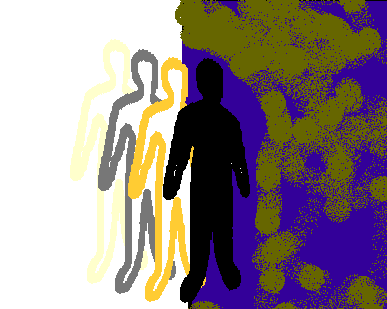

57 comments:
Right on target. Until the enablers are held accountable there will no justice. People tend to just attack the child molesters themselves, but without the help of rotten to the core apples like Margo and Mandel they would not have had the opportunity to go on a rampage all these years.
A good gebencht yor to you EM.
gmar vchasima tova!
I hope that wasn't a swipe at me when it says "rug businessmen."
Yeshiva of Brooklyn & Yeshiva Torah Temima proudly have the biggest rugs and carpets money can buy.
Don't tell me you couldn't hear my screams and cries to the hebishter on rush hashunah. I made sure as the baal tefila to break down as often as possible.
www.capitalnews9.com
Rabbi charged with sex abuse
Updated: 10/01/2008 05:21 AM
By: Curtis Schick
ALBANY, N.Y. -- It was at a Hebrew school on New Scotland Avenue and a Community Center off Whitehall Road where Albany police said Rabbi Yaakov Weiss, 28, of Loudonville had sexual contact with a 13-year-old boy.
Albany Public Safety Officer James Miller said, "The victim along with some of the other classmates were talking about what happened. Somebody overheard that, anonymously called into the New York State tipline."
Miller said while Weiss was teaching at the school, at least two incidents took place, with it happening once at the Community Center. Miller said the abuse went on for 6 months starting last November.
"You have a certain expectation that your kids are going to be safe, that the teachers aren't going to act in an inappropriate manner which he allegedly did at this point," said Miller.
Weiss is rabbi of Chabad Colonie and is best known for fighting with Colonie Center over it not having a Menorah.
Weiss runs his organization out of his Longwood Drive home. No one answered the door Tuesday afternoon.
With Rosh Hashana, calls to Weiss' attorney and to the number listed for the school were not immediately returned.
Miller said, "The investigation is still open because many instances like this, there is a potential that there are many other victims out there."
Weiss is charged with one count of second-degree sex abuse, two counts of third-degree sex abuse and three counts of endangering the welfare of a child. He was arraigned in Albany City Criminal Court and released. There is no word on when he's due back in court.
http://wnyt.com/article/stories/S600081.shtml?cat=300
ALBANY - An Albany area rabbi is accused of sexually abusing a boy he worked with as a religious educator.
Yaakov Weiss of Loudonville was arrested Thursday afternoon.
Albany police say the 28-year-old rabbi had sexual contact with a 13-year-old boy multiple times between November 2007 and April 2008. They say the abuse happened at least once at a location on Whitehall Road and at least twice at a location on New Scotland Avenue.
Police were alerted after New York State Child Protection Services received an anonymous tip about Weiss. After conducting interviews over the summer, police finally determined they have enough evidence to arrest him.
Weiss is charged with one count of second-degree sex abuse, two counts of third-degree sex abuse and three counts of endangering the welfare of a child.
Police say their investigation remains open as they try to determine if there are any other victims.
Albany-area rabbi faces sex abuse charges
September 30, 2008
ALBANY - An Albany-area rabbi is facing charges he sexually abused a 13-year-old boy.
Yaakov Weiss of Loudonville was arrested Monday and charged with two counts of third-degree sex abuse and two counts of endangering the welfare of a child. Weiss was the boy's teacher at the Hebrew Academy of Albany.
Police say 28-year-old Weiss had sexual contact with the boy on at least three occasions. Child Protective Services notified Albany police after getting an anonymous call to their abuse hot line.
School officials and Weiss' attorney, Arnold Proskin, could not be reached for comment Tuesday because of the Jewish holiday.
This is a classic example of what one should do. REPORT IT TO THE POLICE IMMEDIATELY.
Just what Shmarya needs. More ammunition to attack us Lubavitchers.
"Several years ago, Weiss made headlines as the rabbi who lobbied for Colonie Center to include a menorah in its holiday display."
Rabbi Yona Metzger calls on felons to stop wearing traditional Jewish skullcap for sake of appearances when attending court hearings, says phenomenon disrespectful to faith
Neta Sela
Published: 09.30.08, 07:11 / Israel Jewish Scene
Israel's Chief Rabbi Yona Metzger has called on defendants going before the bench to "stop sporting a kippa just for show."
Read in full:
http://www.ynetnews.com/articles/0,7340,L-3602982,00.html
Mazuz: No grounds to file charges against Metzger
Agriprocessors teaches that we must be held accountable all year round
By Cynthia Herber
Special to The Chronicle
A few years ago, my husband was given a leather briefcase as a gift. When he opened the box he marveled at the beauty of the piece and immediately proceeded to open it up and look at the manufacturing label.
Cynthia Herber
Cynthia Herber
After discovering that the case was made from pigskin, he humbly returned the gift and explained that one is not supposed to benefit in any way from non-kosher animals or their products.
His approach provides a lesson for me today when considering what food is acceptable to serve our families or put into our bodies.
On May 12, 2008, the Department of Homeland Security, through its Immigration and Customs Enforcement agents, raided the Agriprocessors meat processing plant in Postville Iowa.
Admittedly “the largest single-site enforcement operation of its kind ever in the United States,” according to U.S. Attorney for the Northern District of Iowa Matt M. Dummermuth, the raid aimed to round up, charge, process, incarcerate and ultimately deport, hundreds of undocumented workers currently employed by the plant.
As a result of those raids, 390 people were detained. Of those, 314 were males and 76 were female; 12 were juveniles; 290 were Guatemalan; 93 were Mexican; and the rest were Israelis and Ukrainians.
This being an election year, the story could have been lost in the press and psyche of the American public if it had not been for Erik Camayd-Freixas. A Spanish interpreter, Camayd-Freixas wrote an essay after the sentences were delivered and the cases were closed in which he described what he thought was an abuse of power and therefore a violation of constitutional rights, including due process.
What was intended to be a professional exchange among fellow interpreters became a nationwide debate about what an interpreter can and cannot do, when confidentiality is broken, and when do the authorities (mainly federal judges, district attorneys and defense attorneys) go too far to enforce a law, in this case the Patriot Act, to prevent “illegal immigrants” from threatening national security.
I am particularly interested in this because, for the last five years, I have worked as a Spanish interpreter in the Wisconsin Court system. As an officer of the court and given that I was not present at the time, I am not in a position to assess the judicial process.
But what I can share is my opinion as an observant Jew. I’m still waiting for accountability.
Tainted process
None of the company leaders has yet been held accountable. And by accountable I refer not only to the law but also to their responsibility to fellow Jews, to the rabbinic authorities who certify their meat as kosher and to the consumers who buy their products.
The charges against Rubashkins and their employees are serious and finally legal action is being taken.
Earlier this summer, about 340 of the workers in the plant as well as two of the plant managers pleaded guilty to various crimes. On Sept. 9, the owners of Agriprocessors and four executives were charged with 9,311 child labor violations. Two of those executives were also slapped with two federal charges.
But what about the other type of accountability? We are now in the Hebrew month Elul, when Jews are supposed to right wrongs and repent. But aren’t we required to live by those guidelines all year and not just right before Yom Kippur?
What about our responsibility to live ethically? The Orthodox Union threatened to suspend its supervision of the plant unless new management is hired. New management was indeed hired on Sept. 18, but what’s missing is the sense that a terrible error has been fixed.
Aaron Rubashkin and his son Sholom, who was the overall plant manager, will no longer be involved in the day-to-day operations but will continue to profit from it. Is it me or is this not quite kosher?
Rabbi Menachem Weismandl, who also gives supervision to the plant, but is independent of the OU, said, “My business is kashrut, and as long as the high kosher standards are in place, I’m not removing any hechsher. My business is to make sure that the place is 100 percent kosher.”
How can kashrut not be compromised if the process through which it is obtained is tainted?
What makes meat kosher? Naturally, observing halachic practices in the way we slaughter the animals is one part.
But the second aspect is a human component. Immigrants caught in the raid described practices that included lax safety measures, underage workers handling dangerous equipment, unpaid overtime and verbal abuse.
Aren’t the people who work for the benefit of those observing the mitzvah of keeping kosher a crucial part of our equation? Isn’t it necessary that our food is processed within a framework of acceptable circumstances?
The message coming from Agriprocessors is that the end justifies the means, no matter what.
In Deuteronomy 24: 14-15, we read: “You shall not abuse a needy and destitute laborer, whether a countryman or a stranger”.
Hechsher Tzedek
The growing concern among kosher consumers jumpstarted a campaign to add a supplemental ethical certification to the current process. The effort to launch “Hechsher Tzedek” is headed by Rabbi Morris Allen of Mendota Heights, Minn., together with the United Synagogue of Conservative Judaism,
However, this has yet to take its well deserved place. Some leaders in the Orthodox community have decried these accusations and have rallied in the defense of Agriprocessors, including Rabbi Pesach Lerner, vice president of the National Council of Young Israel.
And many in the Orthodox Jewish community are resisting the redefinition of kosher, arguing that kosher has nothing to do with the ethical treatment of workers or even the merciful slaughter of animals.
But I believe that one cannot look at mitzvot independently one from the other. They are all bound together. Don’t our sages teach, “Mitzvah goreret mitzvah,” “Do one mitzvah and another will follow”?
We all have the right to earn money for our work. But when our actions infringe on other people’s most central rights to do the same, or when we benefit from something that is in its essence wrong, it is as if we were not doing anything right to begin with.
Why then is it that it is OK to benefit from meat being processed in a not so “kosher” way?
I believe it is a matter of judgment and accountability. We must take ownership of bad practices and poor choices. Regardless of our religious affiliation, we are all part of Klal Israel and are therefore responsible for each other’s actions.
The Jewish community should demand that those responsible for safeguarding kashrut standards and the business of selling these products, be held to a higher standard. Turning a blind eye and hoping no one will notice is not acceptable in Judaism.
It is the season of introspection. Nobody is above the law. Not in the secular world, and certainly not in the religious realm. We know. God knows. Isn’t that enough?
Cynthia Herber is a lawyer born and raised in Mexico City. She received a master’s degree from the University of Pennsylvania Law School and currently serves as a Wisconsin state certified Spanish court interpreter.
http://www.jewishchronicle.org/article.php?article_id=10662
http://failedmessiah.typepad.com/failed_messiahcom/2008/10/rubashkin-son-i.html
Failed Messiah Reports:
Rubashkin Son-In-Law Arrested For Child Sexual Molestation – Chabad Rabbi Allegedly Molested Boy At School, JCC
Rabbi Yaakov Weiss, 28, is rabbi of Chabad of Colonie near Albany, New York. His wife is…
…Rosa Rubashkin, Sholom M. Rubashkin's daughter.
Weiss moved from Postville to the Albany area in 2004:
Geesche Jacobsen
October 3, 2008 - 2:00PM
A former Catholic priest and teacher at Boys Town, a school for troubled boys, has been sentenced to at least nine and a half years in jail today for sexually molesting pubescent boys at the school.
Father Paul Raymond Evans was found guilty of 18 offences against seven boys committed while he was at the Engadine school in the 1970s and 1980s.
His trial was held as Pope Benedict visited Sydney in July and apologised for sexual offences by Catholic priests.
District Court judge Robert Hulme today said Evans had exploited very vulnerable young boys for his own sexual gratification and cultivated many of them to comply by giving them favourable attention and reward.
"The offender cultivated the complainants' compliance with his unbridled sexual urges,'' Judge Hulme said.
Outside the court, one of the victims, who cannot be named, said he was "very happy" with the sentence.
But another of Evans's victims said that he had expected a longer sentence and was disappointed he was not invited to the Pope's apology.
Judge Hulme sentenced Evans to 15 years in prison, but said he would be eligible for parole in January 2018.
After the court adjourned, victims and their supporters applauded in court and one of them yelled "you're not so special now'' at Evans.
Judge Hulme said Evans was not entitled to leniency because his offences were not isolated incidents and many of the victims had told the court they had been abused regularly.
He said he was unsure about Evans' prospects for rehabiliation because he was still denying the offences.
But when Judge Hulme said he took into account in sentencing that "there is no suggestion that in the intervening period he has committed any further offences'', a gasp was heard in the court room, packed with Evans' victims.
However, police in NSW and Victoria are investigating allegations of further offences allegedly committed by Evans while he was working in Victoria.
One of the victims spoke outside court and encouraged others who had the "courage and support'' to come forward.
The victims had explained credibly in court why they had not come forward before, Judge Hulme said.
Many of his young victims would not have had the psychological wherewithall to complain.
And, he said, "even if a boy was to complain [at the time of the abuse] there was a fair chance nothing would come of it''.
"Who would believe that a priest would do such things to a boy in his care.''
One of the boys told the court he told other boys about his abuse, and was soon asked to see the Boys Town rector, Father Flemming, who encouraged him to forget the incident, saying: "Nothing happened. Men have got urges. It does not mean anything.''
The court heard that Father Flemming, who is dead, had also allegedly assaulted another boy.
One of the boys, the court had heard, harmed himself, burning his leg and later placed a tourniquet on it, leaving him with permanent scars, to erase the memory of his first assault by Evans.
The memory of the events had haunted each of the victims ever since, Judge Hulme said.
This story was found at: http://www.smh.com.au/articles/2008/10/03/1222651328644.html
Dealing With Abuse: A Proposal
Date: Wednesday, October 01 2008
Assemblyman Dov Hikind deserves credit for his attempt to deal with the issue of abuse in the Orthodox community - a community where people still refer to cancer as "yener machlah" (that disease); where mental illnesses (even those that are not genetic, such as postpartum depression) are rarely spoken of publicly; and where some parents are still afraid to have their sons and daughters tested and registered with Dor Yeshorim even though doing so might prevent a marriage resulting in children with genetic diseases.
And, of course, there are those who continue to deny that abuse exists in the community (though at the same time allegations of domestic abuse are used in many divorce cases to prevent fathers from seeing their children).
Given these circumstances, it's not hard to understand why Assemblyman Hikind has come up against significant opposition in his attempt to deal with this issue.
In 1984, not long after I was admitted to the bar, I was employed as a law assistant to a judge in Brooklyn Family Court. The court deals with visitation, child support, juvenile delinquency and domestic and child abuse, among other matters. During the six years I worked there it was rare to see an Orthodox litigant.
After leaving my position, I returned six years later as an attorney in private practice. In the intervening years the court's caseload had gown exponentially. The court calendars were clogged with child abuse and neglect cases against parents. Unfortunately, on any given day many of those cases involved Orthodox Jewish families.
Over the years I have written about the issues of domestic abuse and child neglect/abuse in the Orthodox community. I have spoken on these topics to audiences ranging from attendees at the Agudah's annual convention to a group of Kings County assistant district attorneys. And I find that our community still cannot entirely grasp the concept that it is possible for Orthodox parents and spouses to be guilty of abuse or neglect.
I also learned that abuse occurs at many yeshivas and camps as I fielded phone calls from teachers, school administrators, camp administrators and parents.
The molestation of children by teachers and clergy came to the fore a few years ago with reports of widespread abuse in the Catholic Church. The publicity actually made it easier for victims of abuse in the Orthodox community to come forward. The problem, however, is what happens after someone comes forward with an allegation of abuse.
Rape victims, knowing they will be subject to cross-examination and in some ways feel victimized all over again, are often reluctant to prosecute, even with laws in effect that protect their rights during criminal trials. Imagine, then, how difficult it is for children to come forward, especially if the accused is a respected member of the community.
A number of years ago I was approached about setting set up a bet din to deal with cases of abuse within the Orthodox school system. I was told that a major roadblock was the fear that the bet din would be sued by the accused.
Pointing out that teachers, school administrators and all mental health professionals are mandated reporters of abuse in New York, I noted that a bet din could operate in cases where the secular criminal or civil legal systems were not involved. I then suggested that a committee, designated by the institutions that wished to become part of this process, institute employment guidelines for all staff members at their institutions. The guidelines might be as simple as staff members not being permitted to be alone with any child in a classroom, or they could specifically prohibit certain physical contact between staff members and children.
Once the guidelines were set, each staff member, from administrators to custodians, as a condition of his or her employment would be presented with the guidelines and expected to read them and sign an agreement to abide by them. The committee would also develop a list of dispositions for infractions of the rules. These dispositions could include loss of a day's pay, suspension, simple dismissal, and dismissal with a recommendation that the person not be hired at any institution involving children.
A special bet din would be set up to deal with these cases and, to avoid lawsuits, I suggested that complaints be dealt with by the bet din in two stages. In stage one the bet din would determine only if there was an infraction of the employment guidelines signed by the employee. If a finding of a guideline violation was made, the bet din would then determine, in stage two, which of the dispositional options to apply.
The bet din would not list the guideline that was violated in its decision. Obviously, a short suspension or loss of pay would not necessarily become grist for the Orthodox rumor mill. If, however, the disposition was dismissal with the recommendation that the accused not be hired by any other Jewish institution, the name of the accused and the disposition would be made public.
Not listing the guideline(s) the accused violated would serve the following purpose: If the accused believed his rights were violated by the bet din, he would have to commence an action in the secular courts where he -- not the bet din -- would have to state in some manner what he was accused of and why the disposition was improper. I doubt most accused parties would put themselves in the position of having to make this information public.
In addition, the bet din, unburdened by rules of evidence or the constitutional right of an accused to confront an accuser, could conduct its hearings with much more sensitivity to both the victim and the accused than if the matter were handled in the civil courts. The bet din would not be a public forum where everyone's identity could be exposed.
There have been many recommendations about how to protect our children. I do not believe fingerprint checks of teachers and camp counselors are useful. If the problem is that the abusers have not been reported to the authorities by our community, it is highly doubtful that fingerprints would indicate there was anything in the person's background to make him suspect.
I also believe it is the duty of all parents, prior to and during the school year and at the beginning of the camp season, to have age-appropriate discussions with their children about the right to personal privacy and the difference between proper and improper touching.
I am not very confident that efforts to weed out abusers already in our system will be successful. Child victims who have not come forward will unlikely do so until they become adults, and I believe that in most cases parents of younger children who have come forward will in the end not permit them to be subjected to the criminal or civil justice system. I believe that if we wish to police ourselves in order to protect our children we can do so, but we must be honest about the realities of life in 21st-century America.
We are a holy nation and can remain so only if we take steps to protect our children from the predators who live and work among us.
Shlomo Z. Mostofsky, Esq., is president of the National Council of Young Israel.
Well written Stevie. As the executive vice-president of the National Council of Young Israel, I want to reach out warmly and touch your face. You making believe you are against abuse of any kind when you were involved in its cover-up. magnificent!
Me defending the practices of the wonderful Rubashkin family who never hurt even a cat. I feel like the both of us are in seventh heaven.
What the heck is wrong with Mr. Mostofsky? A whole lot! Let us dissect some of his "brilliance."
1) "Unfortunately, on any given day many of those cases involved Orthodox Jewish families."
Mostofsky represented one of those Orthodox Jewish families; the HERSH FAMILY. Remember Isaac Hersh? He was shipped off to Tranquility Bay in Jamaica where he was repeatedly subjected to abuse and neglect.
Rabbi Aaron M. Schecter approved it. Steve (Shlomo) Mostofsky, President National Council of Young Israel, filed the paperwork and tried to prevent Isaac from being rescued. They finally yielded under community pressure.
http://theawarenesscenter.org/hersh_michael.html
2) "I have spoken on these topics to audiences ranging from attendees at the Agudah's annual convention"
Was Avi "no comment" Shafran in attendance? What about the Noviminsker Tush aka Yaakov "not my jurisdiction" Perlow? What about David "i'm against mandated reporters" Zwiebel?
3) "I do not believe fingerprint checks of teachers and camp counselors are useful."
So therefore what? Continue to put on band-aids without attacking the root of the fungus? Let's go to "bais din" and not secular authorities, that is one way to avoid fingerprinting. Yeshiva's should police themselves, that really has worked like a charm until now, hasn't it?
3) "and I believe that in most cases parents of younger children who have come forward will in the end not permit them to be subjected to the criminal or civil justice system."
Really? If they were brave and bold enough to come forward, you actually think they still will not proceed criminally or civilly?
4) "I believe that if we wish to police ourselves in order to protect our children we can do so"
BIG IF. Time and time again it has been proven that Yeshivas, Rabbis, and the Jewish community will attempt to hide abuse.
5) "We are a holy nation and can remain so only if we take steps to protect our children from the predators who live and work among us."
Again. The steps that must be taken are clear. GO TO THE POLICE. If someone sustains a gunshot wound by a Jew thug, should we convene a bais din to look into the charges? Or should we report it to the secular authorities so they can conduct an investigation?
Mr. Mostofsky,
DON'T PLAY US FOR FOOLS!
Mostofsky makes a mockery of abuse victims by writing that gibberish. He ignores medical evidence and just brushes the surface with general observations that any idiot can come up with. His "solutions" are actually contradictory. They do not address the root. They encourage predators to prey without fear of being apprehended. The fact that he knowingly had the Hersh kid incarcerated and then fought to keep him there, is like Osama bin Laden telling us that terrorism is bad.
http://www.jewishpress.com/pageroute.do/36539/Dear_Dr._Yael_Yael_Respler,_Ph.D..html
------------------------------------
Dear Dr. Yael
Date: Wednesday, October 01 2008
Dear Dr. Yael,
As an avid reader of your column, I have decided to be blunt with you. I am an 18-year-old frum bocher attending a regular yeshiva. If you saw me in the street, you wouldn't look twice.
From when I was about eight until I was twelve, an older guy molested me time and time again. He would always tell me to never tell my parents, so I never did. Now as a big boy, I see him in the street all the time and want to attack. I think he is afraid of me, giving me some power over him. What do I do? How do I approach him? Please help. I feel I am responsible to make sure he does not continue this terrible cycle.
Please help me. Thank you.
Big Boy With Big Problems
Dear Big Boy,
Thank you for your important letter. I am sorry that you had to endure this trauma when you were young. I don't think it would be wise to approach this man, even if you feel he will listen to you, and you can influence him. He is obviously a sick person and needs professional help. You, yourself should be getting professional help to help you deal with this trauma.
It is a good thing that you want to attack this person because it shows that you are able to verbalize to yourself that you have been wronged. I appreciate this letter and know that many other boys and their parents will benefit from your wish to come forward.
Unfortunately some individuals are not ready to believe that there are frum people who do sick things, and sometimes when someone comes forward with an admission of pain in order to help others that person can be mistreated.
I must commend Assemblyman Dov Hikind for all that he is doing to address this problem. His office is overwhelmed with calls as he tries to help our community with this problem. Unfortunately our community is trying to bury this problem. However, our children are suffering from the serious problem with child molestation pervading our frum community.
Assemblyman Hikind encouraged me to print his phone number for anyone wanting to report a molester. His number is 718-853-9616.
I work with children and adults who were molested, but I do not have the ability to legally take action against them. Thus I encourage my readers to speak to Assemblyman Hikind's office in order to deal with molesters.
Here are some possible signs of abuse that parents should look out for in their children:
· Inappropriate interest in or knowledge of sexual acts
· Seductive behavior
· Reluctance or refusal to undress in front of others
· Extra aggression or, at the other end of the spectrum, extra compliance
· Fear of a particular person or family member
· Alienation or withdrawal
· Clinginess/neediness
· Flashbacks and nightmares
Parents, please maintain a close and consistent relationship with your children so they feel comfortable talking with you about whatever is on their minds. Children need to know that you will be there for them when they tell you what is bothering them, especially when it is something as scary and vulnerable as molestation and sexual abuse. Thank you again for your letter. Hatzlachah!
Dr. Yael Respler will be speaking at the Nevele Hotel over Sukkos. For further information, call Rabbi Mutty Katz at 718-755-9864.
Dr. Respler's DVD/CD-Rom/Video, Chutzpah is Muktzah 2, is available in Judaica stores throughout the U.S., Canada and other countries. Toddlers and children will benefit from its excellent promotion of derech eretz.
Big Boy With Big Problems,
Report this sick guy to the police right away. You are still within the stature of limitations. Your molester will not stop preying on children unless someone like you goes to the cops. Most likely there are other victims of this man. You want justice, you want to save and help others. You can accomplish both!
Kindly email me and I can guide you through the process. You are one brave individual. May you find menuchas hanefesh. Wishing you a happy and healthy!
EM
Matzil_Nefoshos@yahoo.com
Don't beat around the bush with Hikind or anyone else. Call the police, press charges, and get this guy off the street!
Religious Affairs: Honor, haredi-style
Oct. 2, 2008
Matthew Wagner , THE JERUSALEM POST
Which restaurants and food products are kosher and which are not? Who is allowed to get married and who is not? Who can be a rabbi and who cannot?
Last week, elections took place to choose the state-empowered body - the Chief Rabbinate Council - that is supposed to answer these questions.
The elections were an upset. The non-hassidic, Lithuanian-haredi rabbinic leadership, which gradually has been gaining more power within the Chief Rabbinate, suffered a major setback. Two of its veteran members, Rabbi of Rehovot Simcha Hakohen Kook and chairman of the Neighborhood Rabbis Council Moshe Rauchverger, who is also a neighborhood rabbi in the Haifa area, were voted out of the council.
Rauchverger and Kook, both connected to the Degel Hatorah party and adamantly backed by Rabbi Yosef Shalom Elyashiv, the supreme halachic authority of the haredi Ashkenazi community, were replaced by two rabbis who do not necessarily adhere to his decisions.
One of them, Rabbi Ya'acov Shapira, is a symbol of religious Zionism. He is the son of former Ashkenazi chief rabbi the late Avraham Shapira, considered the most important halachic authority of religious Zionists until his death a year ago. Shapira inherited from his father the position of head of Mercaz Harav Yeshiva, the flagship educational institute for religious-Zionist rabbis.
The other new face is Ya'acov Ruzah, rabbi of the Tel Aviv Burial Society and the L. Greenberg Institute for Forensic Medicine at Abu Kabir. Ruzah's halachic decisions permitting autopsies in cases in which foul play is suspected has raised the rancor of more zealous elements of Orthodoxy, who argue that any mutilation of the body is desecration and blasphemy, since man is created in God's image.
But the major victor in last week's elections was Shas. The Sephardi-haredi party - led by Rabbi Ovadia Yosef, considered the preeminent halachic authority for Sephardi Jewry - managed to get Yosef's son, Avraham, into the Chief Rabbinate Council, despite the opposition of the Lithuanian-haredi rabbinic establishment.
In a battle between two rabbinic titans, Yosef won out over Elyashiv.
SINCE ITS founding in the early 1980s, Shas has been deferential to the Lithuanian rabbinic leadership. The very establishment of the party was orchestrated under the tutelage of Rabbi Elazar Shach, the charismatic, fiery leader of Lithuanian-haredi Jewry before the more low-key nonagenarian Elyashiv.
Perhaps the most dramatic example of Shas's previous deference to Ashkenazi hegemony was a political scheme which later went down in Israeli political annals as the "stinking maneuver."
In 1990, the national unity government headed by Yitzhak Shamir turned down a US request to begin negotiations with the Palestinians over the fate of Judea, Samaria and Gaza. Shimon Peres, who demanded that the government accept the US request, secretly attempted to put together a narrow left-wing coalition to replace the national unity government. However, Peres's political escapade failed after Shas backed out under pressure from Shach.
Shas mentor Yosef could not bear to open up a front against the Lithuanians and against Shach. Yosef, who is a halachic authority in his own right and has revolutionized the field of Halacha, could not single-handedly take on the elite Ashkenazi rabbinic leadership, with its venerable tradition of talmudic erudition and long history of scholarship and educational institutions.
Shach and Elyashiv claim to represent an impeccable, unbroken rabbinic lineage, reaching back hundreds of years, that can boast of dozens of talmudic luminaries, educated in the most important Torah centers of the modern era. Before the Holocaust, Lithuania, Poland, Ukraine and Russia produced the dominant figures of rabbinic authority.
Yosef is aware of the relatively subordinate position held by Sephardi Torah scholarship in the modern era. He is intent on using Shas as a catalyst for boosting the education level. Looking back longingly to the golden era of Sephardi erudition, when men such as Maimonides, Shlomo Aderet and Yosef Karo were the towering halachic authorities of their times, Yosef hoped to "return the crown to its rightful owner" after several hundred years of decline, and rehabilitate Sephardi scholarship. Until that happened, however, Yosef had to cooperate with the Ashkenazi leadership.
Whenever possible, Shas has tried to work with the Lithuanian yeshiva world. For instance, in the vote last year for rabbinical judges, Shas joined forces with Degel Hatorah to control the appointments.
However, in last week's vote, Shas could not back down to Ashkenazi demands. According to sources close to the rabbinate, Yosef is grooming his son, Avraham, rabbi of Ashdod, for the chief Sephardi rabbi slot in four years. Getting him elected to the Chief Rabbinate Council is an important step in that direction.
MEANWHILE, THE Ashkenazi leadership did everything in its power to block Yosef's son from getting elected. Elyashiv is ardently opposed to Avraham Yosef's lenient position on laws governing the shmita year, which rests on his father's rulings.
Yosef has supported the controversial practice known as heter mechira, which involves the temporary sale of agricultural land to gentiles. This "sale" abrogates the special sanctity of the land of Israel in the sabbatical year, and enables Jews to continue to work the land. If not for the sale, the land would have to be allowed to rest.
Ashkenazi haredi rabbis are particularly irked by what they consider Avraham Yosef's irreverent style. He has a regular program on the popular Radio Kol Chai station, during which he delineates his halachic decisions in an authoritative, terse manner. Yosef, who answers questions from listeners, regularly attacks dissenting opinions, without mentioning names, including opinions held by Elyashiv.
Shas sees the Ashkenazi attempt to block Yosef's appointment as a blatantly inappropriate form of intervention. After all, the 10 new appointments to the council are split into two groups - five Ashkenazim and five Sephardim.
The battle between Ovadia Yosef and Elyashiv will probably have little impact on the wider public. With or without Avraham Yosef on the council, heter mechira will continue to be implemented by the Chief Rabbinate. Jewish farmers would lose too much money if it were not. And the Supreme Court has already ruled in favor of these farmers against the previous Chief Rabbinate Council.
Rather, the struggle between Yosef and Elyashiv is for influence and power, and ultimately, for rabbinic hegemony. Yosef, the son of a grocer, wants to "return the crown to its rightful owner."
Slowly but surely, he is succeeding.
This article can also be read at http://www.jpost.com /servlet/Satellite?cid=1222017443125&pagename=JPost%2FJPArticle%2FShowFull
The pro-Agriprocessors site was formed by 24-year-old Getzel Rubashkin and two friends not connected to the company. His father, Sholom Rubashkin, was until this summer the plant's CEO, and his grandfather, Aaron Rubashkin, owns the New York-based company.
The blog drew the suspicion of area residents, including a radio host. Getzel Rubashkin said in an interview with the host that he provided some technical assistance for the site, then acknowledged in an interview last month with The Associated Press that he and his friends created it.
Rubashkin, who lives in Postville and worked part time at Agriprocessors, said he didn't use plant money to work on the blog, but did film the interviews in the plant and had unfettered access to it and its employees.
Getzel Rubashkin said he and his friends started the Web site about two weeks after the May 12 raid, in which 389 workers were arrested on immigration charges. The hope, he said, was to counteract false media reports.
by Stewart Ain
Staff Writer
Mainstream Orthodox rabbis have for the first time affirmed that kosher food must not only be prepared in a certain way but that the company doing the work must comply with specific ethical standards.
The move signals not only a shift in the way these Orthodox rabbis view what kosher means to the American consumer, but it has also opened up a sharp rift with the right-of-center Agudath Israel of America. The umbrella group contends that halacha [Jewish law] refers only to food preparation and not the treatment of the employees.
And the move reinforces the view of the Conservative movement, which recently developed an ethical certificate or “hekhsher tzedek” to be affixed to food products prepared in an ethical manner; the Reform movement
has endorsed it.
http://www.forward.com/articles/14314/
Haredim Begin Confronting Pedophilia
By Lana Gersten
Thu. Oct 02, 2008
ABUSE ALLEGATIONS: Extradition proceedings against Avrohom Mondrowitz, right, have renewed interest in combatting child abuse in the ultra-Orthodox community. Assemblyman Dov Hikind, below, has created a new task force to address the problem.
After years in which the issue of pedophilia has been quietly dealt with among ultra-Orthodox Jews, a number of leaders in the community are speaking out publicly on the topic, spurring anger and debate over this sensitive issue.
Sexual abuse of children has periodically arisen in the ultra-Orthodox community through high-profile cases like that of Yehuda Kolko and Avrohom Mondrowitz, a teacher and a youth counselor, respectively, who were accused of abusing their students. Leaders in the community told the Forward that they generally treated those cases as isolated incidents. But both the Kolko and Mondrowitz cases have bubbled back up, and in the past few months a number of community leaders have forcefully taken the issue to a new plane.
Perhaps the most influential voice has been of Brooklyn Assemblyman Dov Hikind, who over the past year — and, particularly, over the past two months — has started a somewhat personal campaign and argued that the ultra-Orthodox community has become a haven for child molesters. Agudath Israel of America, a national ultra-Orthodox umbrella organization, has entered the fray by publicly debating legislation on the topic.
“Until not terribly long ago, the issue was very much in the shadows,” said David Zwiebel, director of government affairs and general counsel of Agudath Israel of America. “The fact that there were isolated reports here and there of cases arising in yeshiva settings, it was known, but they were very isolated.”
“Sometimes they were dealt with correctly and sometimes incorrectly,” Zwiebel added, “but the severity of the problem and the possible magnitude were really things that most people, including myself, just didn’t understand.”
The largely Brooklyn-based ultra-Orthodox community, which spans many different sects, has seen a handful of explosive cases, beginning with that of Mondrowitz, who was indicted in Brooklyn on five counts of sodomy and six counts of sexual abuse in 1985, but fled to Israel during the scrutiny.
In 2006 and 2007, Kolko was charged with several counts of sexual abuse. In this case, which went to court, prosecutors allegedly talked the families of the victims into not pursuing further action after a plea bargain was negotiated, The Jewish Week reported. While Kolko first faced felony child sex abuse charges, he eventually pleaded guilty only to child endangerment and received no jail time.
Religious communities of all sorts often attempt to deal with sex abuse behind closeed doors. In the ultra-Orthodox community there is also a scripturally motivated desire to deal with legal problems through religious courts rather than secular ones.
But in 2006, New York magazine published an in-depth look at the Kolko case and the larger issue of sexual abuse. In October 2007, Kings County District Attorney Charles Hynes signed papers requesting the extradition of Mondrowitz to the United States.
Following suit, Hikind, an Orthodox man himself and one of the most vocal members of the community, has brought unusual publicity to the issue. He said he only recently came to the realization that sexual abuse in his community is not, in fact, restricted to isolated cases. He said that lately, an “avalanche of people” has come to his office to talk about cases of sexual abuse.
“I’m shocked, and I’ve been around a long time, and I’m pretty with it,” Hikind told the Forward. “I’ve been absolutely shocked and flabbergasted by what I’ve witnessed in the last eight weeks.”
In response, Hikind has taken up the fight this summer by creating a new task force in his office that he says will develop a protocol to address the problem of sexual abuse in a broad way. The task force’s mission is to collect a list of suspected child molesters and make that list available to the public. In an interview with the independent community newspaper The Jewish Star, Hikind boldly described what he views as the extent of the problem.
“If you’re a child molester, the best community to come to is Borough Park, Flatbush, Lakewood or Monroe,” Hikind said, referring to areas that have large ultra-Orthodox populations. “Your chances of being arrested are much smaller because people don’t press charges.”
Amy Neustein, one of the most outspoken activists on child abuse, has noted the change.
Now, Neustein believes that the “groundswell of activism and discontent with the community has finally reached critical mass.”
Zwiebel also believes that this issue is more on the radar now, but he traces the beginning of the interest to a time before Hikind’s campaign. He believes that it goes back to the sexual abuse scandals in the Catholic Church. It was then, Zwiebel said, that his members started to hear their own stories of abuse.
In 2006, Agudath Israel supported a bill introduced in New York State to allow private schools to opt into a program that required fingerprinting for all new hires. That same year, Agudath Israel had “no opposition” to a bill that would have obligated these schools to report any cases of sexual abuse and child abuse in their school setting.
More recently, Agudath Israel has declined to take a position on a new fingerprinting bill that would mandate all private schools to opt into the system, though Zwiebel said that this was only because the rules and regulations of the system have not yet been published.
The movement in the community, though, has not gone unopposed. In August, Rabbi Benzion Twerski, a psychologist and respected member of the community, was tapped to head Hikind’s task force. He resigned just days after his appointment, reportedly because of the overwhelming pressure and intimidation he received.
“That just goes to show you that we’ve got a long way to go,” Hikind said.
Marvin Schick, who has written extensively about Jewish affairs in his position as president of four Orthodox Jewish day schools, one of which is ultra-Orthodox, believes that Orthodox Jews at large are following the trends of larger society. Because there is greater attention being paid to this problem in the secular world, the Orthodox community is just following suit, he said.
Asked whether more people are now realizing that sexual abuse is a real problem, Schick said: “I don’t think [that’s] fair. I’ve been president of four schools for 36 years, and there hasn’t been a single situation.”
He also warned against the possibility of false accusations, which could ruin the lives of those unjustly punished.
Despite the concern, cases of alleged sexual abuse keep coming up — most recently in August, when a former student sued Rabbi Avrohom Reichman, a teacher at a prominent Satmar school in the Williamsburg section of Brooklyn, accusing him of sexual assault and abuse. The suit from the student alleges that the school failed to protect students against sexual assault. Reichman has not yet responded to the suit.
According to Elliot Pasik, the attorney for the alleged victim in the Reichman case, Hikind has taken up the issue at the right time and is on the right track. He believes that the public recognition of the problem will lead to increased legislation with a greater sense of urgency.
“There’s growing consensus, both in establishment quarters and in the synagogue pews, that some helpful governmental involvement in the life of our yeshivas is necessary,” Pasik said.
Every time they talk about abuse my name comes up. This is unfair. I was not accused of abusing 31 boys like this priest. Cut me some slack please. Besides, it was blogger UOJ who brought much unwanted attention to my kiddie problems. What is this thing about giving credit to the church? As if frum Jews started to come forward because of them? I think Avi Shafran and I are both in agreement that bloggers pose the biggest risk to our cravings.
http://www.abc.net.au/news/stories/2008/10/01/2379076.htm
Priest accused of abusing 31 boys
Posted Wed Oct 1, 2008
A Sydney Catholic priest stands accused of sexually abusing 31 boys after another 13 alleged victims came forward.
Sixty-five-year-old John Sidney Denham was charged with 30 child sex offences dating back to the 1970s in August, relating to 18 alleged victims aged 11 to 17.
A further 37 charges were laid today, bringing the total number of alleged victims to 31.
Most were former students of Newcastle's St Pius X Catholic High School.
The charges arose from an initial single complaint made in April.
The alleged offences occurred in Adamstown, Pokolbin and Charlestown in the Hunter Valley, Taree and Granville in Sydney.
The 67 charges include soliciting or inciting a male to commit an indecent act and sexual assault.
Denham was a member of the Maitland-Newcastle Catholic Diocese before relocating to Sydney, where he was on restricted duties working as a librarian at a theological college.
The case has been adjourned to next month.
The Jewish Press until now has been very coy in printing anything resembling the notion of there being haredi child molesters in the Jewish communities.
And Suddenly in the last few weeks there has been some mention of this topic. Some (yaakov horowitz) seem sincere. Others (Steve Mostofsky) sound like baloney.
The Jury is still out on Dov Hikind. But one thing that bothers me is why can't the Jewish Press and Dr. Yael Respler bring themselves to simply say to the the victims four words - GO TO THE POLICE.
We all know Agudah and the Jewish Press wouldn't even be acknowledging child predators were it not for the surge in media attention and blogger intervention. They can mask it all they want but we all know the ugly truth. Zweibel, Shafran, Perlow and co. are a joke.
PARIS (EJP)---Rabbi Hillel Pevzner, head of the “Committee of Lubavitch Rabbis” in France, died Thursday in Paris at the age of 85.
Born in Minsk, Bielorussia, in 1922, Rabbi Pevzner, who survived bolchevik Russia and Nazi Germany, settled in Paris in 1947 and was named chief rabbi of the Lubavitch community in 1951.
The community numbers around 25,000 people and dozens of institutions, including synagogues, schools as well as social and cultural structures.
Rabbi Pevzner was granted the Légion d’honneur, France’s highest distinction.
http://www.ejpress.org/article/news/western_europe/30857#
- Rabbi Dr. Goldie Milgram
Jewish decisions are not always made by rabbis, scholars, or religious courts. The Talmud shows that a consensus of behavior emerging from within the Jewish people can also sometimes change the way the sages interpret or apply a practice, law or tradition, or can guide which mitzvah in a given generation trumps or synergizes with which. We are seeing a vivid example of this in the Agri-processors case. Just as with the education and enfranchisement of Jewish women, a sea-change in attitudes about the meaning and value of kashrut is coming by means of the evolution of Jewish ethics about respect and care for all sentient beings.
My first encounter with eco-kosher ideas was in the 1980's, in the teachings of Rabbi Dr. Zalman Schachter-Shalomi at the Reconstructionist Rabbinical College. An archive of his works appears at rzlp.org. Reb Zalman wrote:
"The regular kosher way is about the dishes that mustn't be contaminated and so on. If I pick a cup to have coffee, Styrofoam would be the best thing to have. It hasn't been used before, and after I drink from it, I'll throw it away and nobody else will use it. From the usual kosher place that's the direction to go…but in comparison to what will happen to the planet by drinking from Styrofoam, I'd much rather make the other choice…eco-kosher."
Training in eco-kashrut supervision involves in-depth study of Jewish law and tradition combined with studies in what makes for authentically green practices in the raising, preparation, packaging and transportation of foods and treatment of workers. It was a thrill to instigate the Aleph.org training of individuals as mashgikhim, - those who do kashrut supervision - some half dozen years ago by speaking with two talented colleagues passionately committed to this ideal, Rabbi Dennis Beck-Berman who served in the military as rabbi and mashgiakh and the talented mashgiakh Rabbi Victor Gross. Graduates serve world-wide, offering eco-kosher supervision and kashering of institutional kitchens. I next leapt in the air at the New York Limmud Conference to hear the concept discussed indepth under the leadership of Hazon.org. How joyful to now applaud the recent decisions of the Conservative Movement to create a heksher tzedek, another great evolution in our people's walk beginning to match the deepest ethical convictions about people, animals, commerce and ethics so many of us hold dearly.
Watching the fall of the old interpretive model, that a change in understanding of Jewish law isn't likely to be accomplished if it compromises a Jewish owner's income stream, is truly a wondrous valWatching the fall of the old interpretive model, that a change in understanding of Jewish law isn't likely to be accomplished if it compromises a Jewish owner's income stream, is truly a wondrous validation of the power of our people. So many report feeling so ashamed and sad that kashrut regarding meat was being so narrowly defined early-on as about the details about which kind of animal, and then kosher killing and effectively removing the blood, by the majority of one part of the Jewish spectrum of practice and interpretation. I recall a colleague from the seminary in Morristown, NJ with whom my team taught the Responsa literature at The Academy for Jewish Religion, telling about a mashgiakh in his family whose hand shook when he killed the animal and some in the community wanted him not to be allowed to practice his trade. The bet din's decision? His hand shook not from age, but from compassion for the animal, "his tears fell on his knife," was in their decision. What menschen served on that Jewish court! Made me proud to be a Jew.
I was shocked and saddened to visit family in Passaic within the past few weeks and see a copy of The Jewish Press discussing this issue referring to myself and colleagues across the spectrum of Jewish practice as "so-called Jewish leaders." Our whole people need each other to stretch and grow the revelation travelling across the generations,: the vision, views and voices of all of us. If we cannot reason together with respect, the mitzvah of ahavas(t) yisrael is for naught, and the hoped-for period of world peace, the so-called messianic time, will never transpire, or so our sages have written.
Take heart, headlines in the Forward tell us that once again the power of the people is having its impact, Jewish authorities of note across the full spectrum of Jewish practice seem to be finally reappraising the meaning of kashrut. What is the Jewish ground of being for this? There are at least six mitzvot that synergize when we contemplate what "eco-kosher" can mean as a Jewish update to our software of halachic, ethical and personal understanding. I hope learned readers will add even more to this list I'm writing hurriedly a few hours before yuntif. Ask yourself when shopping for food does it fulfill these mitzvot:
Bal tash-hit – Tolerate no wanton destruction of the planet (Deuteronomy 20:19-20).
Is the environment protected by the raising, preparation, packaging and transportation of foods of the companies from which you buy? If you buy in quantity for a group, keep in mind that it multiplies the good or damage to the environment. When synagogues own china, for example, then paper plates for hundreds are not sending extra trees to the landfill. Carpool to shul, it could be a bumper-sticker, no?
Tzaar baalei hayyim – Allow no unnecessary pain to sentient beings (Exodus 23:5).
Is the veal milk-fed? Was a baby animal confined in a tiny cell and force-fed for your eating pleasure? Do the animals only get a good death with a blessing or are they free range and did they get to have a life? Were dolphin safe-fishing practices utilized by the tuna fishing firms? How were the laborers in the food and sales chain treated in terms of wages, benefits, hours and working conditions? Where are they housed? Do they get sufficient health care? Are they spoken to with respect? Are their holy days honored?
Shmirat ha-guf – Care for your body as it is a precious gift (Deuteronomy 4:9)
Do you want bovine growth hormone or melamine in the milk your children drink? What about certain pesticides? Are you on a calorie-restricted diet? If you are to prepare a meal with your own health considerations in mind, what criteria need to be added to this list? The more we buy organic foods, the more volume to the organic growers and sellers and the lower the prices can be. This is the mitzvah of collective action, it's how the market works, we need to use our influence for personal and common good of all.
Lifnei iveyr lo titeyn mikshol – Put no stumbling block before the blind (Leviticus 19:14).
What are the dietary needs of those at your table; Is someone a diabetic? A heart patient? An alcoholic? It takes thought to prepare a meal that will bring pleasure to all while not tripping up those with serious health considerations.
Hachnassat orchim – Ensuring your guests feel truly welcome (Genesis 18:1-8).
While not all guests have medical problems, they may well have important dietary preferences, such as a vegetarian lifestyle; or they may observe the more technical practices of keeping kosher, such as not eating even the tiniest of insects hidden in a lettuce leaf. Often accommodating such dining difference is not as complex as it may sound-just ask your guests what would work for them and how to accomplish it.
Kashrut – Pay attention to what you choose to eat and how it is prepared (Leviticus 9:1-11:47).
Jewish tradition teaches the importance of making distinction through conscious eating. This vast system of separating milk from meat foods, dishes, utensils, and more stems in many ways from a verse in Exodus 23:19: "Do not seethe a kid in its mother's milk." Milk is the gift of life. Meat is life taken away. It is part of the mitzvah of keeping kosher, kashrut, to remember the gift and the sacrifice of the animal's life by keeping that which is dead separate from that which gives life. Does this idea touch you in any way? Free-range kosher products are becoming increasingly available and these multiply many times the mitzvah of kashrut.
The more of us who participate, the more affordable for all and the more kindness in the world – to animals, planet, workers and self. So let us do teshuvah for the planet and the people as this year, we do for creation part of what HaShem sent us here to do, to fully live a mitzvah-centered life.
L'shana tova tikateivu.
Rabbi Dr. Goldie Milgram resides in Mt. Airy and she directs ReclaimingJudaism.org and www.Bmitzvah.org, among her published works is Meaning & Mitzvah: Daily Practices for Reclaiming Judaism through Prayer, God, Torah, Hebrew, Mitzvot & Peoplehood (JewishLights.com) and Reclaiming Judaism as a Spiritual Practice: Holy Days and Shabbat (JewishLIghts.com).
From the silent epidemic that no one wants to talk about.
-- Dr. Daniel E. Loeb
Child abuse is an uncomfortable topic to broad, but if we want to protect our children from this trauma we must speak up. The subject has been in news lately, so we would like to give you the evidence on how to protect your children.
Child molestors can often be trusted family members or friends, men or women. The Catholic priests do not have a monopoly on the scourge of pedophilia. In fact, the Jewish Coalition Against Sexual Abuse/Assault details over 100 cases of Jewish Rabbis and other community leaders who have betrayed our trust. In our area, Cantor Phillip Wittlin of Chisuk Emuna Congregation in Harrisburg and Ari Sorkin of Congregation Keneseth Israel in Elkins Park have been convicted of molesting children under their care.
Children in suburban Philadelphia are vulnerable to these attacks just as children in inner city neighborhoods.
As parents, educators or community leaders what can we do to protect children?
Supervision and vigilence is important, but education plays an essential role according to Dr. David Finkelhor of the Crimes Against Children Research Center at the University of New Hampshire.
While a member of the Illinois General Assembly Barack Obama along with the Illinois Parent Teacher Association, the Illinois State Medical Society, the Illinois Public Health Association and the Illinois Educational Assocation endorsed legislation to amend the Illinois School code to include such age and developmentally appropriate child sexual abuse prevention education:
SB99: Course material and instruction shall discuss and provide for the development of positive communication skills to maintain healthy relationships and avoid unwanted sexual activity. ... Course material and instruction shall teach pupils ... how to say no to unwanted sexual advances ... and shall include information about verbal, physical, and visual sexual harassment, including without limitation nonconsensual sexual advances, nonconsensual physical sexual contact, and rape by an acquaintance. The course material and instruction shall contain methods of preventing sexual assault by an acquaintance, including exercising good judgment and avoiding behavior that impairs one's judgment.
The bill called for all sex education course materials to include information that would help students recognize, among other activities, inappropriate touching, sexual assault and rape. Obama's intentions are painfully clear and valid:
"I have a six-year-old daughter and a three-year-old daughter, and one of the things my wife and I talked to our daughter about is the possibility of somebody touching them inappropriately, and what that might mean. And that was included specifically in the law, so that kindergarteners are able to exercise some possible protection against abuse, because I have family members as well as friends who suffered abuse at that age."
While the Jewish community is relatively open about giving our children the information they need to help protect themselves, the issue of sex education has not been without debate in more conservative circles.
Political Advertisement from the McCain campaign plays on racial stereotypes, accusing Obama in essence of corrupting five-year old girls. "His [Barack Obama's] one accomplishment? Teaching comprehensive sex-education to kindergardeners. I am John McCain and I approve this message."
Senator McCain has revived attacks launched in 2004 by Alan Keyes falsely accusing Senator Obama of wanting to pervert our youth through comprehensive sexual eduation to kindergardeners. However, Obama did not support "explicit sex education to children in kindergarten". In fact, the bill granted parents the right to withdraw their children from sex education classes without question.
In 2006, the Catholic Medical Association Task Force reeling from abuse scandals characterized sex education as "ineffective" and "inconsistant with the science of emotional, cognitive, neurobiological and moral development of the child". On the other hand, some have pointed to Governor Palin's daughter Bristol's pregnancy as an example of the failure of abstinence-only based sex education.
In his study "Prevention of Sexual Abuse Through Educational Programs Directed Toward Children" published in Pediatrics, Dr. David Finkelhor concludes that:
"It is worth providing children with high-quality prevention education programs. Some research has suggested that the programs promote disclosure. One study found lower rates of victimization for children who were exposed to these programs. A study found that children who are exposed to prevention education have less self-blame if they are victimized."
Satirical video from 23/6 shows a hypothetical response in kind to the McCain attack ad.
All of this underscores the importance of protecting our children against sexual preditors.
According to Safe Place (The Children's Hospital of Philadelphia's Center for Child Protection and Health) children should practice saying no. Children who are able to appropriately assert themselves are at lower risk of victimization.
Talk to your kids about what kind of touching is not okay. For example, they should be told that the parts of the body covered by underwear is private.
Encourage children to tell someone they trust if anyone tries to touch their private parts. It is very common for kids to be molested, know it is wrong, but they feel like there is nobody they can talk to about it, or that their parents wouldn't care or would not believe them. Give your kids a safe forum to be able to talk about anything. Teach children never to keep secrets that make them feel uncomfortable or bad.
Answer questions children ask with language they will understand, and answer only what was asked. This gives the child the opportunity to come back after he or she integrates the information you provided.
Children with internet resources are vulnerable to contact from neighborhood bullies and inappropriate adult contact in ways that their parents never faced. As an adult community it is up to us all to protect our children from these threats. This can mean a level of intrusiveness and monitoring which may seem to cross the line of childrens’ privacy, It is the approach we take to such monitoring which will make our children understand our intentions.
Christine Downs of Safe Place recommends the following children's books to help parents talk to their children about this issue:
* It's MY Body, A Book to Teach Young Children How to Resist Uncomfortable Touch by Lory Freeman,
* Your Body Belongs to You by Cornelia Maude Spelman and
* I Can Be Safe, A First Look at Safety by Pat Thomas.
According to the Children Are Worth Saving Community Outreach Program:
* Parents can help protect their children by teaching them awareness of dangerous people and the lures used to entice children. Children should be aware not afraid of the dangers! Through education, perhaps we can prevent a child's disappearance.
* Set aside time to talk to your children about dangerous people and strangers. Gear the talk to your children's level of understanding. Be straightforward, without frightening a sensitive child.
* Teach your children their full name and yours, phone number with area code, and address with zip code. They should know how to make local and long distance calls; use a pay phone; call home and law enforcement departments; and dial "0" for the operator or 911 in an emergency.
* Be sure your children know what to do if you are separated while shopping. They should not look for you; they should go to the nearest clerk and ask for help!
* Explain who a stranger is. Children should never enter a stranger's home, get into their car, or take gifts from them. Explain when the child has the right to say NO to an adult. Be aware of anyone who pays an unusual amount of attention to your children. Listen to your children if they don't want to be left alone with someone. Ask them to tell you about anyone who asks them to keep a secret or any new adults they meet.
* Encourage your children to use the buddy system. Advise them what to do if a stranger follows or approaches them. Get to know your neighbors and establish "safe homes" where children can go for help.
Break the silence. Break it now.
newsday.com/services/newspaper/printedition/monday/partii/ny-lsamy5863209sep29,0,861140.column
Newsday.com
ASK AMY: With support, tell parents of sex abuse
Amy Dickinson
Ask Amy
September 29, 2008
DEAR AMY: When I was younger, my uncle sexually abused me. To this day, I haven't told my parents, and I'm starting to think I should. It's a memory that I pushed to the back of my mind and wanted to forget. The thing is, I'm majoring in social work in college, so this topic comes up all the time.
Should I tell my parents?
Unsure
DEAR UNSURE: Fear and intimidation are an abuser's primary weapons.
Please break your silence, take this power away from your abuser, and you will begin to recover aspects of your life he took from you when he abused you.
This will be the beginning of a challenging period for you, and I applaud your instincts to tell. Before speaking with your parents, you might want to explore this with a professional who can support you through the process.
You should treat this with a sense of urgency. You should sit down and talk with a therapist at your college counseling center.
The Rape, Abuse and Incest National Network offers invaluable resources for survivors of sexual abuse and assault. It runs a 24 hour-hot line staffed by counselors and has recently started an "online hot line." Go to rainn.org or call 800-656-HOPE (4673).
Your parents will want to know about this, and your uncle should be brought to justice. If your uncle abused other children, you have an opportunity to help them, in addition to helping yourself.
Chesed Part 2: Hachnasat Orchim & Shabbat
The Special Connection between Shabbat and Inviting Guests:
There is something special about hachnasat orchim, hosting guests, on Shabbat. Even people who host infrequently during the other six days of the week, often feel something is missing if they do not have Shabbat guests at their table.
What is the explanation for this special connection between hachnasat orchim and Shabbat? There certainly are practical reasons – 1. There is more time available for hosting on Shabbat than during the rest of the week; 2. It is convenient to invite guests on the day that we are anyways preparing special meals; 3. The mitzva of eating the Shabbat meals is often more joyfully fulfilled in a larger group and in a family setting.
A suggestion for explaining this phenomenon: Perhaps Shabbat is especially aligned with hachnasat orchim (not only a practically appropriate time to fulfill the mitzva of hachnasat orchim). Shabbat has a unique aspect that other mitzvot do not – "Kabbalat Shabbat", Greeting the Shabbat. The Rambam (Mishneh Torah, Hilkhot Shabbat 30:2) describes how the mitzva of honoring Shabbat includes washing, dressing up, and “sitting seriously as one waiting to greet the King. The early sages would gather their disciples, cloaked in talitot and say, ‘Let us go out to greet the Shabbat the King.’”
We relate to Shabbat as a personality, not just as a particular mitzva performed on a particular day (this theme is developed by the author of "Shabbat Malketa" in his chapter on Kabbalat Shabbat). On Shabbat there is a special revelation of the Divine Presence, and the personality we welcome is the Shechina. [In a yahrzeit shiur in memory of his father (published in Shiurim L’zekher Avi Mori) Rav Soloveitchik points out the parallels between Shabbat preparations and preparations for prayer. He then shows how the distinction between Shabbat and Yom Tov is parallel to that between a synagogue and the Beit Hamikdash.]
Shabbat is defined as hosting the honored Divine guest visiting our home. It is, in a way, hachnasat orchim for the Shechina. Inviting guests, then, is the essence of Shabbat.
Inviting Guests is Greater than Receiving the Divine Presence
Inviting in human guests might even go a step beyond welcoming the Divine Presence. Chazal teach us, based on Avraham’s seemingly offbeat conduct, that receiving guests is greater than receiving the Divine Presence. Avraham interrupts his prophetic experience to run and greet the three guests. Why did Avraham do this and what is behind Chazal's seemingly radical statement?
The Nesivos Shalom explains: One shows a good friend how beloved he is by inviting him in to his home, showing him great hospitality. However, if a friend is especially dear, even if the friend's son shows up at your door you receive him with open arms, merely because he is your friend’s son. Inviting in guests, people who are G-d’s creations, His children, is an even greater sign of our love of G-d than actually receiving the Divine Presence. We love G-d so much that we are always ready to open up our homes to His children. This is why inviting in guests is greater than receiving the Divine Presence.
A story found on Nishmas Chayim web site at http://www.nishmas.org/stories/loveshab.htm
Nishmas Chayim, http://www.nishmas.org, a significant web resource on Chassidut, is maintained by Darche Noam staff member Rav Binyomin Adilman.
October 6, 2008
Monsey-based rabbi charged with sexually abusing girl for nearly a decade
Steve Lieberman and Jonathan Bandler
The Journal News
A Monsey rabbi accused of sexually abusing a female relative over the course of a decade pleaded not guilty this afternoon to federal charges in U.S. District Court in Brooklyn.
Rabbi Israel Weingarten, 58, was ordered held without bail in federal lockup during his arraignment by Magistrate Judge Joan M. Azrack.
Weingarten, who had been married and had eight children, pleaded not guilty to the charges through his New City lawyer, Kenneth Gribetz, the former Rockland district attorney.
Gribetz ask the judge to release Weingarten without bail.
Assistant U.S. Attorneys Andrea Goldbarg and Rachel Nash argued in court papers and in court that Weingarten represented a flight risk and was capable of intimidating witnesses.
Azrack, in denying bail for the rabbi, was critical of Weingarten for resisting the FBI agents who arrested him this morning at his Monsey home. The rabbi refused to let the agents into the house and locked himself in his bedroom. The agents had to break down doors to remove him.
FBI agents arrested the Monsey-based rabbi on an grand jury indictment accusing him of sexual abusing a female relative over the course of nearly a decade, starting in 1990 when she was 9 years old. She's now 28 years old.
Weingarten is charged with five federal counts, accusing him of traveling around the world to have sex with the minor and avoid being charged.
The indictment charges him with two counts of knowingly and intentionally transporting a minor in foreign commerce with the intent to engage in a sexual activity. He also was charged with three counts of knowingly and intentionally traveling in foreign commerce for the purpose of engaging in a sexual act with a minor.
If convicted at trial, Weingarten faces an estimated prison term of 168 to 210 months in prison, according to the U.S. Attorney's Office.
Weingarten is accused of abusing the young girl on a weekly and sometimes daily basis in Belgium, Israel and the United States, according to documents filed with the U.S. District Court in Brooklyn.
The girl left her family and the Satmar Hasidic Jewish community in September 1999, when she was 18, federal documents state.
Weingarten is accused of trying to kidnap her in 1999 from a family protecting her in England, according to the documents. He's accused of assaulting that rabbi and his wife, who were sheltering the girl.
Weingarten teaches children in the Satmar Hasidic Jewish community, the documents said. He ran a Satmar school in Belgium and worked for religious elementary and secondary schools in Brooklyn.
U.S. Attorney Benton Campbell asked Judge Magistrate Joan M. Azrack to order Weingarten held without bail. In court papers, Campbell argued Weingarten was a flight risk and a danger to the victim and witnesses.
"He moved her to different countries in order to continue the abuse and to escape any threat that he would be apprehended as word of his abuse began to spread," Campbell wrote. "He has resorted to threats and violence to intimidate those who tried to protect the victim and other members of his family."
Brooklyn Man Arraigned for Repeated Sexual Abuse of Daughter
by Brooklyn Eagle (edit@brooklyneagle.net), published online 10-06-2008
CADMAN PLAZA EAST – A Brooklyn man was arraigned Monday in the U.S. Federal Court for the Eastern District of New York on five charges related to sexual abuse of a minor.
Israel Weingarten of Brooklyn was charged with two counts of transporting a minor internationally for the purpose of sexual abuse, and three charges of traveling internationally for the purpose of sexually abusing a minor.
The victim of this abuse was Weingarten’s daughter, who he sexually abused in various ways from the age of nine to 18, according to court documents.
Prosecutors are moving to have Weingarten, who is a United States citizen, held without bail.
Weingarten with his wife and 8 children lived in Israel, Belgium, and England at times in various Sat Mar communities, which is a conservative sect of Hasidic Judaism...
http://www.brooklyneagle.com/categories/category.php?category_id=4&id=23613
Alfred Weingarten, the defendant's brother, called the victim a "flip-flopper" who has previously retracted her claims. "She [the victim] is a problem, she left her religion 100%," Alfred Weingarten said.
http://www.israelnationalnews.com/News/News.aspx/127888
Rabbi Battles PETA Harrassment in Fight for Kapparot Ritual
by Hana Levi Julian
(IsraelNN.com) The battle lines are being drawn between The People for the Ethical Treatment of Animals (PETA) organization and the National Committee for Furtherance of Jewish Education (NCFJE) with the advent of the season of Kapparot, the ancient Jewish rite of slaughtering chickens to atone for one's sins before the holiday of Yom Kippur.
Monday, October 6, 2008 - 2:27 PM CDT
Barnes-Jewish finishes $10M overhaul of West County cancer center
Barnes-Jewish Hospital said Monday that the $10 million overhaul and West County expansion of its Alvin J. Siteman Cancer Center is now complete.
The expansion allows St. Louis county residents closer access to nationally recognized cancer treatments and therapies at Barnes-Jewish West County Hospital that previously were only available in the Central West End.
The facility houses a new linear accelerator, allowing Washington University radiation oncologists to treat patients with external radiation therapy; a CT scanner for radiation oncologists to use in treatment planning; and double the outpatient clinic space for cancer patients.
Barnes-Jewish Hospital is part of St. Louis-based BJC HealthCare, which has net revenue of $2.9 billion. It is affiliated with Washington University School of Medicine.
Is that cellphone kosher?
The BBC's Erica Chernofsky looks at how Israel's highly traditional Ultra-Orthodox Jewish community is tackling the challenges and opportunities of new communications technologies.
When Israeli father Avi tried to register his 6-year-old twin daughters for his local Ultra-Orthodox school this year, he was happy to sign a form saying his children do not watch television or use the internet at home.
But he was surprised to discover he had to give a "kosher cellphone number". He did not have one.
Avi lives in Har Nof, one of the main Ultra-Orthodox, or Haredi, neighbourhoods of Jerusalem.
I feel I can control myself not to use the bad features - But do I trust my children?
Avi
The community separates itself from mainstream society through its traditional religious practices and distinctive attire of black hats, coats and sidelocks for the men and long skirts and sleeves for the women.
Like most other men in his community, Avi studies the Jewish scriptures daily, keeps the Sabbath and eats only kosher food.
But he has not yet opted for the new religious adaptation to modern technology that has swept the Haredi world in Israel.
Badge of observance
The kosher cellphone looks like an ordinary cellphone, can make and receive calls, and may have a calculator and alarm clock.
But it cannot send or receive text messages, browse the internet or take photos - all activities that could potentially involve behaviour considered "immodest" among Haredis.
For example, SMS capability could lead to the unwitting receipt of mass text messages publicising secular events. It could also be used as a method of illicit communication between male and female teenagers.
And all photos of women are forbidden, as is accessing websites with content deemed inappropriate.
The phone's other defining feature is a rabbinical stamp of approval, similar to those seen on kosher food items.
All the major Israeli cellphone companies have accommodated the powerful Haredi constituency by providing kosher phones, and cheaper-than-normal packages which only connect with other Haredi numbers.
As the companies have created distinct code prefixes to accompany the kosher phone plans, the phone numbers have quickly become a badge of religious observance.
Not only do some Haredi newspapers refuse to publish ads with non-kosher phone numbers, but parents are worried their children will be blacklisted by the shadchan, or matchmaker, if their numbers are not kosher.
Banana filtered
"What do you associate with the Haredi community? You wear black trousers, a white shirt and some sort of hat, but today the things that define you have changed," says Avi.
He says he feels there is a sense that anyone who does not have a kosher phone "should be excluded from society".
"If you say you are associating yourself with us, please act according to our codes, otherwise do not call yourself Haredi and do not send your kids to our schools."
But while they have managed to adapt the cellphone to their lifestyles, Haredis have had a harder time with the internet.
Last year, an Orthodox rabbi and an Israeli technology executive established an internet service provider (ISP) called Rimon, which claims to be the only filtering service provider in Israel that offers customised surfing packages.
The company says it cuts out pornography, violence, and gambling, and then provides the user with five levels of further filtering, from the "protected" level that blocks images of women in intimate apparel to the "hermetic" level, which allows users to view only unchanging, vetted websites like encyclopaedias.
There are many things on the internet that are not appropriate for me as a Haredi woman, things I would prefer that my family and I didn't see or hear
Miriam
"If your kid puts 'banana' into Google, some of the first sites he'll get are porn," explains Chairman Moshe Weiss. "Put banana into Google on Rimon, and you get all the same sites without the porn."
One Haredi sect, the Belz, which normally forbids online access, has partially endorsed the use of Rimon, but only for those who need the internet for business purposes.
The general rule for the local Haredi community still remains no radio, no TV, no internet and no movies - though Rimon is hoping that once it starts targeting the Haredi market that will change.
For now, its 15,000 subscribers are mostly secular and modern Orthodox.
Self control
Miriam, a teacher living in Jerusalem, is one of many Haredi Jews who do not have home web access.
She expresses concern over the amount of time people devote to surfing the net, wasting time they could spend learning Torah or doing good deeds.
Her main worry, however, is over the lack of control over content.
"There are many things on the internet that are not appropriate for me as a Haredi woman, things I would prefer that my family and I didn't see or hear, like violence, pornography and inappropriate sexual relations," she says.
For Haredis, "inappropriate" means any physical contact between a man and a woman who are not married.
But Avi, who says he needs the internet for his work in the tourist industry, has unfiltered online access.
"I'm not afraid of the negative aspects because I grew up with internet and I feel I can control myself not to use the bad features," he says.
"But do I trust my children?" he wonders aloud.
"When they are old enough to use it I will definitely have to re-evaluate. I think then I might put filters on or use Rimon, or maybe then I'll even disconnect internet from the house altogether. It's just not worth the risk."
Story from BBC NEWS:
http://news.bbc.co.uk/go/pr/fr/-/2/hi/middle_east/7636021.stm
Now another 13 year old boy is accusing me of inappropriate sexual contact.
--------------------------------
Loudonville rabbi charged again with sex abuse
CBS 6 News
October 7, 2008 - 3:19PM
A local rabbi has again been charged with sexual abuse after police say he victimized another boy.
Rabbi Yaakov Weiss was charged last Monday with several counts of sexual abuse and endangering the welfare of a child with a 13-year-old boy.
Tuesday afternoon, Albany Police additionally charged Weiss with second-degree sexual abuse and endangering the welfare of a child for allegedly having inappropriate sexual contact with another 13-year-old.
The incident reportedly occurred in June on Whitehall Road.
Police say the additional charges stem from their initial investigation into Weiss -- the same that led to his arrest last week.
Weiss was arraigned in Albany City Criminal Court.
NYPD hate crimes task force probes Yom Kippur letters
By the Associated Press
October 7, 2008
New York City police are investigating a rabbi's complaint that threatening e-mails were sent to try to stop a ritual involving the slaughter of chickens before a Jewish holy day.
Rabbi Shea Hecht of the National Committee for Furtherance of Jewish Education says the e-mails were sent by supporters of a People for the Ethical Treatment of Animals campaign opposing the ritual, known as Kapparot.
He says some people added threatening and anti-Semitic comments to an online PETA form letter.
The ritual involves the slaughter of a chicken to atone for one's sins before Yom Kippur, which begins Wednesday.
The Brooklyn-based organization slaughters about 4,000 chickens.
A PETA spokesman says the ritual is abusive and unnecessary.
The NYPD Hate Crimes Task Force is investigating.
courant.com/news/custom/topnews/hcu-nebbrisson-1007,0,3643911.story
Courant.com
Sex Abuse Suspect Faces More Than 100 New Charges
Hilda Muñoz
The Hartford Courant
6:40 PM EDT, October 7, 2008
Police said they have identified more underage victims of sexual abuse by a 30-year-old man already charged with sexually assaulting several children.
Jeffrey Brisson, who lived at an apartment on Washington Street, faces more than 100 new counts of sexual assault and risk of injury to a minor.
Investigators identified new victims after combing through a large amount of computer related evidence seized from Brisson's apartment in January. Police continue investigating the identities of more potential victims, and they said they expect to file additional charges.
Brisson and his roommate, Harold Spurling, were arrested in January during a raid of their apartment that was prompted by a tip and evidence that the suspects had sexually assaulted a 14-year-old boy, police said.
They were charged with multiple counts of first-degree sexual assault and risk of injury to a minor, as well as tampering with evidence and interfering with a search warrant. It was unclear Tuesday whether Spurling would face additional charges.
Officers arrived at their apartment with a search warrant in time to stop the men from encrypting child pornography on their computer. They also found a 3-month-old girl in the apartment and a video of one of the suspects sexually assaulting her, police said.
The girl is the daughter of an acquaintance of the suspects. She was taken to a hospital for a medical exam and then released to her mother, police said.
Anyone with information regarding Brisson or Spurling is asked to call New Britain police at 860-826-3065.
KNOXVILLE, Tenn. (WVLT) -- Chances are you're already feeling the effects of the struggling economy, but in some families, money-related stress leads to domestic violence.
When your bills are due and you don't know how you'll pay them, most people worry, but some get angry and take it out on those around them.
Those who deal with domestic abuse everyday say as the economy gets worse so does the violence.
These are the people who work to stop domestic violence. They say no matter how hard they work the numbers still go up, especially in these tough economic times.
G. David Lovett, pastoral counselor with First Baptist Church in Knoxville says, "I can expect that the rates will continue to rise because money is one of the biggest issues."
Knoxville has something most communities don't. The city is home to one of the country's 16 federally-funded Family Justice Centers. Since it opened its doors two years ago, people here have helped over thirty-five-hundred victims. They say they key to understanding domestic violence is to understand that it's all about control.
Rabbi Beth Schwartz is a member of the Clergy Taskforce on Domestic Violence. She says, “When someone has a very strong need to be in control and circumstances are beyond his control, that can lead to an increase in domestic violence."
Amy Dilworth, executive director of the Knoxville Family Justice Center says, "There's always power and control with finances as well, and these families that we're working with, certainly that's when violence increases and we start seeing people come in more."
These pairs of shoes each represent a victim of deadly family violence in Knox County the last three years. With stakes so high, why don't victims leave? The economy may play a role there too.
Attorney Camellia Saunders with Legal Aid of East Tennessee says, "How are they going to get a job to support their kids if they do leave? So it's probably more likely in today's time that people may be more willing to subject themselves to the abuse that they have been enduring because of the situation with the economy."
The Family Justice Center says it doesn't have to be that way.
Dilworth says, "It's important to understand that other people are going through this. It's important to understand there's another side, there's a place to get to where they can be free of the feelings that they're feeling now."
You can also call the Family Violence Helpline at 865-521-6336.
In the Diaspora: Unetaneh tokef
Oct. 2, 2008
Samuel Freedman , THE JERUSALEM POST
For two days earlier this week, as many of us stood in synagogue, we recited one of the most famous and challenging passages in the Rosh Hashana liturgy, the acrostic poem of Unetaneh Tokef. At the very outset, the text reminds us we are in the "awesome and terrible" time of judgment. For those who fall short, the verses declaim a variety of hideous deaths: by beast, plague, stoning, famine, earthquake, sword.
In its refrain, however, Unetaneh Tokef offers the formula for survival. U'teshuva, u'tefilla, u'tzedaka ma'avirin et ro'a hagezera, go the words. Repentance, prayer and righteousness can avert the evil decree.
As American Jews, we're not particularly vulnerable these days to famine or beasts, and stoning was something we gladly partook of in college. We need deliverance more from hypocrisy, a hypocrisy bred by comfort. Hearing the Rosh Hashana service, it was hard to conceive of a more appropriate focus of New Year soul-searching than Agriprocessors.
By now, the scandal of Agriprocessors has been chronicled from Stephen Bloom's book Postville to Nathaniel Popper's investigative reports in the Forward to Julia Preston's coverage in The New York Times to the muckraking blogger FailedMessiah.com. No sensate American Jew has any reason to be unfamiliar with the rudiments of the case: The largest kosher meat plant in the nation has been charged with violating federal or state laws on pollution, workplace safety, child labor and the employment of illegal immigrants.
Early on in the series of exposures, Morris Allen, a Conservative rabbi in St. Paul, Minnesota, began campaigning for a new designation of kashrut called hechsher tzedek that reflected how a food producer treated its human employees as much as its animal raw material. With the explosion of news about Agriprocessors since last spring, when federal authorities swooped down on the Iowa plant to arrest several hundred Hispanic immigrants, the hechsher tzedek proposal has gathered momentum from its base in the Conservative movement to Reform and even certain Modern Orthodox quarters. Just in the past few weeks, the Orthodox Union threatened to withdraw its valuable hechsher from Agriprocesssors' meat unless the company replaces its CEO. The Rabbinical Council of America, the major association of Orthodox rabbis, announced it would form a task force to determine ethical guidelines and practices in producing kosher food.
SO, WHILE I hardly was in the position to take a field survey, I would guess that hechsher tzedek and Agriprocessors figured prominently in a great many Rosh Hashana sermons. Which is all to the good. And at the same time, I've become aware of a dismissive counterargument that portrays hechsher tzedek as an easy issue, a lofty stance that costs nothing to the person holding it. That premise I deeply dispute.
At a minimum, an American Jew who refuses to buy Agriprocessors' meat is willing to be inconvenienced because its distribution network is unmatched in the industry. If there is indeed a kosher-meat shortage in parts of the country, as has been reported, then prices will almost certainly rise.
Paying that kind of literal price is the least important cost of conscience. Far more importantly, the Agriprocessors situation requires us to look into ourselves, our values. America as a whole has been unwilling to acknowledge the elephant in the room - the illegal immigrants, given no plausible way to become legal, who babysit our kids, mow our lawns, bus our tables, build our homes. No, the discussion on the subject consists of one side: the fantasy of walling off Mexico and shipping all the illegals to the far side.
Agriprocessors offers our own specifically Jewish version of this American embarrassment. The biggest producer of the meat we consider to be holy was doing so by taking advantage of the desperate and weak.
IT ISN'T Agriprocessors' fault that Congress has repeatedly caved in to the nativist lobby and failed to enact a rational reform of immigration law. But it is Agriprocessors' fault, enabled by our complicity at the cash registers, that the powerlessness of its workforce, the inability of the exploited to protest against their own exploitation lest they be uncovered and deported, made possible all the other forms of workplace abuse. To endorse and live by and buy by hechsher tzedek would require you (or me) to look unflinchingly at the casual hypocrisy that lets you separate what you consume from how it got to your plate.
What kind of religion cares more about how a cow's neck is slit than about child labor? Imagine if, after the Triangle Shirtwaist Company fire, the prevailing Jewish concern hadn't been about the young seamstresses locked into a burning factory, but whether the clothes they made had mixed wool and linen.
One of the lasting shames of the Triangle fire is that it was the company's Jewish owners who exploited its Jewish workers. In the case of Agriprocessors, the Jewish owners, the Rubashkin family, have had plenty of defenders among the Orthodox. One delegation of rabbis, having taken a plant tour paid for by the company, pronounced the facility state-of-the-art - as if the issue here were the age of the equipment, not the conditions of the workers. Lenin had a phrase for that Orthodox delegation: "useful idiots."
It will be far from an easy issue to have an intra-Jew battle over hechsher tzedek. A lot of liberal American Jews, who never before showed much concern about kashrut, will have to make a persuasive case. Surely, the Rubashkins and their apologists are counting on their Jewish critics to lose energy, drift away, alight on some other cause du jour. Even if Agriprocessors changes its CEO, as the Orthodox Union has insisted, the shift could prove purely cosmetic unless sustained pressure on the company to rectify its day-in, day-out practices continues.
When it comes to Agriprocessors and hechsher tzedek, tefilla is the easy part, the lip service. Tzedaka and teshuva, righteousness and repentance - those demand action.
www.samuelfreedman.com
This article can also be read at http://www.jpost.com /servlet/Satellite?cid=1222017437442&pagename=JPost%2FJPArticle%2FShowFull
You mean if I actually did Tshiveh I can lose a few pounds?
September 24, 2008
Teshuvah and weight loss
Parshat Nitzavim (Deuteronomy 29:9-30:20)
By Rabbi Debra Orenstein
Let me begin with an important disclaimer: it is wrong to equate physical fitness with spiritual fitness. (I personally was at the peak of my spiritual strength during my last pregnancy when I gained 70 pounds and had muscle atrophy from bed rest.) I attribute no virtue to slenderness and no vice to heaviness. But the process of losing weight -- in which I have been engaged for some time (perhaps a few Jews can relate) -- has instructive parallels to teshuvah (returning to God and our best selves).
Years ago, I heard a medical show on the radio that stuck with me. A caller needed and wanted to lose weight, but felt thwarted because of thyroid disease, poorly controlled diabetes, high blood pressure and bad knees. What advice could the doctor offer?
The doctor replied starkly: "There is a basic biological fact: if one moves more and eats less, one will lose weight. You are no exception."
Wow! Initially, I felt that the answer was harsh, even uncompassionate. But the caller seemed to appreciate it. As I mulled it over, I found the reply comforting. Simple, predictable laws are at work, and I am no exception (Deuteronomy 29:18-20).
This truth of the physical realm applies to the meta-physical, as well. It is not always easy to live by the Torah and uphold its principles, but we often magnify our confusion and the difficulty of the task (partly as an excuse to bow out of it). As our Torah portion, Nitzavim, states: "This commandment which I command you today is not too baffling for you, nor is it far off.... The thing is very near to you, in your mouth, and in your heart, that you may do it" (Deuteronomy 30:11-14).
The laws and stages of repentance -- far more than the $36-billion diet industry! -- offer helpful guidance and nuances. But the essence of teshuvah is simple, if not easy. Just as the doctor prescribed, "move more, eat less," a rabbi might say, "love more, sin less." Truly, "the rest is commentary. Go and learn" (Shabbat 31a). The purpose and path of teshuvah are close to us and known to us. You already know how to repent and forgive. It is "in your mouth and in your heart." You know just where to begin, with whom you need to talk, and what qualities and habits you must cultivate. Even if you are in denial, however, the principles of teshuvah, like the rules governing weight loss and like the covenant itself, apply universally -- for women and men, for political leaders and wood cutters, "for those who are standing here today [aware and awakened] and for those who are not present here today" (Deuteronomy 29:10, 29:14).
The following are basic principles that will, I hope, prove useful for teshvuah -- and perhaps for weight management, too.
Take Responsibility
With rare exceptions, your level of physical or spiritual fitness today is based on what you did in the past. Nitzavim puts it this way: "I call heaven and earth to witness against you this day: I have put before you life and death, blessing and curse" (Deuteronomy 30:19). Outside influences notwithstanding, we have chosen.
Understanding and insight can be essential precursors to change, but they do not in and of themselves cause transformation. If you want a different result, you will have to make new choices.
Love and Care for Your Body
Rabbi A.I. Kook taught that the first stage of teshuvah is physical self-care. How can you accept rebuke, examine your motivations, or ask for forgiveness in a state of exhaustion or, worse, physical abuse? We need to make peace with our bodies and be kind to them, in order to effectively carry out the work it takes -- physically and spiritually -- to maintain our fitness.
Give Some Things Up
This is not news on the weight-loss front. You may have to give up desserts, trans-fats, large portions. You may even need to stop stocking junk food in your pantry.
Ditto for all kinds of temptation we renounce yet keep accessible. Also, to become spiritually "lighter," you will need to give up grudges, cast off sin, forsake false gods (Deuteronomy 29:25) and, in the image of Nitzavim, remove the foreskin from around your heart (Deuteronomy 30:6 and 10:16).
Despite what they know intellectually, people often believe that extra weight is "keeping them safe" from sexuality, accountability or their own power. Similarly, many folks operate from the belief that they protect their honor by refusing to forgive. Setting that boundary keeps justice alive and prevents them from being betrayed again. Or does it?
Take Some Things On
Healthy eating and teshuvah are undermined when we confuse them with deprivation. Both are enhanced when we consider not just what we are renouncing, but what we are gaining. What is your best intention and vision? Nitzavim foresees "abounding prosperity in all your undertakings," even after severe missteps (Deuteronomy 30:9).
What antioxidant super-foods can you add to your diet to give you better energy? What "mega-mitzvot" can you engage in, to remove spiritual "rust" and give you new vibrancy? With what positive habit might you replace destructive patterns? Don't settle for what satisfies right now but does no good in the long run.
Keep At It: Small Changes Make a Big Difference
The Song of Songs says, "the little foxes spoil the vineyards" (2:15). Sometimes, it is the seemingly trivial negative habits that undermine success. A small tweak, over time, can yield powerful results.
Bear in mind, too, that with teshvuah and eating habits, results are not immediate. You don't practice patience once, or eat well for a day, and see dramatic changes. Persist, and you will.
May you be blessed with a truly new year -- for body, mind and spirit.
Rabbi Debra Orenstein is spiritual leader of Makom Ohr Shalom (www.makom.org) and a frequent scholar-in-residence. Her new Web site (www.rabbidebra.com) offers teaching CDs and other resources for spiritual work in anticipation of the High Holy Days and year-round.
Rabbi Debra?
Don't be silly Lipa. You can't take the reformeisters seriously.
Fatso Margo will dip his obese body into an honorable mikvah before yom kipur.
Oprah's rabbi brings Yom Kippur to the Web
Posted by Eric Benderoff at 3:09 p.m.
Yom Kippur, the holiest of the Jewish high holidays, is going high tech.
Rabbi Naomi Levy, who has spoken with Oprah about spirituality, is allowing her Kol Nidre service, which marks the beginning of Yom Kippur, to be broadcast online at JewishTVnetwork.com. The service starts at 8 p.m. in Chicago.
There is real value to what she is doing. Not every Jew is affiliated with a synagogue or temple. Some are between cities, between jobs, disabled, cannot afford a membership to a congregation or have simply walked away from the faith.
And some are like me: not willing to leave the faith but no longer an active participant. It has probably been a decade since I last attended services for Yom Kippur.
Yet I believe in the notion of Yom Kippur. Not to atone for my sins, but rather as a day spent reflecting about my family, my career, my departed but beloved parents and where this life may be heading.
It’s a good day, actually, spiritual in its own sense and one I’ve come to embrace. It’s my current reflection of religion.
But I like to keep every door open, even it’s virtual, and I’m intrigued by Rabbi Levy’s approach to Judaism. She’s started a movement called Nashuva, which translates to ‘we will return.’
“The mission of Nashuva is reach unaffiliated Jews and those that have become disconnected from the religion, for whatever reason,” she told me, adding that surveys show about half of American Jews—more in urban areas—no longer feel affiliated with the faith.
Her services, which are held in a church in Brentwood, Calif., take a non-traditional approach to traditional prayers. She uses a band stocked with studio musicians, not all of them Jewish, and they bring country, gospel and African rhythms to the service.
“We’ve had services on a beach and in a meadow at a state park,” Rabbi Levy said. “We try all different approaches to reach Jews.”
Being online is an obvious extension of Neshuva. But is it for me? It certainly appeals to my techie persona, but will it appeal to my religious beliefs, even if they are somewhat nebulous? Some believe, as my colleague Manya Brachear writes on her engaging Seeker blog, Yom Kippur should be a communal affair, not a solitary experience viewed on a computer.
I told Rabbi Levy I’ll be watching her service—and I will.
“I have no idea what the experience is going to feel like sitting in front of a computer,” she said. “I’m anxious to hear what you think.”
It already has me thinking. And you?
“The mission of Nashuva is reach unaffiliated Jews and those that have become disconnected from the religion, for whatever reason,” she told me, adding that surveys show about half of American Jews—more in urban areas—no longer feel affiliated with the faith.
http://www.forward.com/articles/14175/
By Jay Michaelson
Thu. Sep 11, 2008
As the season of repentance approaches, our Jay Michaelson offers some thoughts on the meaning of judgment, forgiveness and love, and how to think of the Infinite to whom the new year’s prayers will be directed.
Every year at this time, for at least the past decade, I have struggled with the theology of atonement, the liturgy of repentance and the challenge of tshuvah, return. When I was a child, and into my teens and 20s, the imagery was effective; I didn’t think there actually was a Book of Life up there in the sky, but I appreciated the metaphor. I felt myself judged on Yom Kippur, impelled to repent of various sins and shortcomings.
Later, though, the metaphor became cloudy. As I came to accept my sexuality, I saw that much of what we ascribe to noble motives of repentance was really guilt warmed over. Not only did the wicked thrive — the old problem of theodicy, reflected in the books of Job and Jonah — but they also seemed to be better-adjusted than some of the pious. I started to wonder whether it was even a good idea to fast and introspect in this way.
This is not, strictly speaking, a theological question; it is a psychological one. Let us set aside the question of whether God actually exists. We know, most of us, that images of God are metaphors, for our benefit: If God exists, then God is beyond all ascription, all image. And if not, then these are just stories we tell ourselves. Either way, the question is whether this particular image — the judging God — is helpful or harmful. Put another way, which is better to name as an experience of God: that of love or of judgment?
To be sure, it’s not an either/or decision. In Jewish tradition, God is the dayan emet, the true judge, and harachaman, the compassionate/womblike one. God is Mother, Father and Friend; Teacher, Consoler and Lover. For that matter, God is Everything and Nothing, Immanent and Transcendent, Earth and Sky. Surely the kabbalists were right that, experientially, we humans relate to the infinite according to traits, genders, energies and perspectives that are different for different people and at different moments.
It is not that the judging God is the only God-image we have. But on Yom Kippur, He (and He is a He) is the dominant one. So the question remains: Is it a good image to have, or a bad one?
Today, many object to the image of the judging God on the grounds of history: How can we speak of a God who judges in the wake of the outrage of the Holocaust? Surely, this objection argues, whatever we may wish to say about God, we cannot say that God judges fairly. Others object to the image on the bases of gender, politics and family psychology: This judging God is like an abusive father (or husband), they say, meting out punishment and doling out rewards from above. We would all be better off without such an exemplar of abuse, patriarchy and hierarchy.
Still others, and I may be among them, object to the image of the judging God on spiritual and psychological grounds. Is it really such a healthy thing to feel oneself to be inadequate, judged and deficient? Does it really make us better people, or does it just make us tougher, more defensive and more judgmental ourselves? Does it comport with mystical experience, which radiates acceptance and compassion? Does God judge us, or only love?
I do not have a neat answer to these questions, but I want to suggest that while the judging God is an image of God that is experientially accurate, it is ultimately something to be transcended.
First, guilt is part of human nature, and not an entirely bad part; it keeps us honest, checks the ego, and reminds us that we all have the capacity to be selfish and cruel. The judging God, in this light, is simply the superego projected toward the heavens; it accords with our experience of remorse. And as a form of social control, it is an effective story that doubtless keeps many of us from acting on our baser instincts. It just needs periodic updating from time to time.
But the essential part of this image, particularly on Yom Kippur, is that it is not a static one. God judges in order to inspire us to change, in order that God can forgive. Again, let’s stay with experience, not myth. The point is that we judge ourselves so that we can introspect, right our wrong behaviors, taste the sweetness of forgiveness — and then move on. The catharsis of Yom Kippur serves its function and then ends. The shofar is sounded, the book is closed, the process is complete.
This is where so much Jewish practice, it seems to me, goes off the rails. Well, the book is really open for another couple of weeks. Well, God is always watching you, and always judging. Well, you never actually deserve to be forgiven; God just extends mercy to the undeserving. No wonder our Christian sisters and brothers threw up their hands and said you never can win unless a savior comes and saves you. The deck is stacked against us.
And it has a way of never ending. I remember, during my more observant days, debating whether to eat un-hekhshered (non-kosher-supervised) cheese, a legal debate that goes on within the Conservative movement to this day. Believe it or not, I really racked my brain and searched my heart over this technical halachic issue. The rules seemed nonsensical. But was I just trying to rationalize doing what I wanted? Did God really care? Was the system out of whack, or was I being lazy and indulgent?
I shared some of this struggle with an Orthodox friend of mine. She laughed at the story, because while eating “nonkosher” cheese was beyond the pale for her, she was having the same internal debate about eating dairy products that were not “cholov yisrael,” or watched by a Jew at all times. The legal issue was different, but the pattern of soul-searching and guilt was the same.
Today, the whole thing looks like neurosis. Yes, there’s a certain nobility to suffusing every aspect of one’s life with holiness, and in participating in a millennia-old tradition of law. But all this angst — about cheese! Couldn’t the emotional energy be better spent on giving more money to the poor, rectifying the sins of racism and sexism, or, well, just about anything? Is the sense of God’s judgment helping us do what’s right or making us neurotic about anything and everything?
The narrative arc of judging-introspection-forgiveness remains, for me, an important one, because it calls attention to my own tendency to judge myself and to my attendant need to forgive. But if it gets stuck in the middle, it turns into craziness.
If it weren’t tragic it would be funny. Because with judgment comes — if we judge ourselves worthy — arrogance, self-justification and the judging of others. Or — if we do not — self-hatred, anxiety and defense mechanisms aplenty. We make ourselves tough, argumentative and always right, because we fear that otherwise we will be found lacking.
The judging God is a stage along the psychological path, both individually and communally. It is important to hold ourselves to a high standard of ethical, and possibly ritual, behavior. But at a certain point it becomes more important to forgive ourselves for not meeting that standard — and, as a culture, to learn to be more loving and understanding, rather than judgmental and strict. Of course, there are always personal and political instances where strictness is appropriate. But do we really think that what the world needs now is more judgment?
It’s a shame that so many Jews go to synagogue only on the Days of Awe. I wish they would turn up for the Days of Love, Rest and Celebration (Sukkot and the Sabbath are good starts, as are meditation retreats). Those, it seems to me, are what we need more of: more love, more authenticity, more openness. And they yield experiences of something that deserves to be named as “God.”
When love, rather than judgment, fills my heart, I see a natural world that we are lucky to inhabit, in bodies that are miraculous in construction, and I feel loved in return. I feel the imperative to pursue justice, not out of judgment or toughness but out of compassion. Terrible things still happen. But I feel God’s presence in the companionship and response to such adversity, in intimacy, in love, in the healing and the mending.
I have been an avid follower of this blog since its inception. I know first hand of calamities committed by the YOB animals. I grew up very frum. I respected adults. I trusted others. YOB took that all away from me. Every year around this time I become terribly depressed. To me the Rabbis have not met their obligations. They have demonstrated poor leadership skills. Not saving children from child predators is an epidemic that has been avoided for the most part. So how on earth can they say kol-nidrei every year under these same circumstances? Does Hashem forgive them even though they refuse to beg for forgiveness from all the kids and adults they hurt? It just doesn't seem right.
Wishing exposemolesters and all of klal yisroel a happy and healthy new year!
Anon,
I feel you. Stay strong my friend.
Forgiveness is very tricky. We all want to let go and move on. But how can you forgive an evil act in which somebody ripped out your very heart and soul? Far me be from answering that question, for I am not qualified. I struggle with that very same issue constantly and do not have an answer that will satisfy me and nor you.
Emo Philips has a quote that rings true. I think it epitomizes this concept rather cunningly.
“When I was a kid I used to pray every night for a new bicycle. Then I realized that the Lord doesn't work that way so I stole one and asked Him to forgive me.”
He who stole your innocence and deprived you of a healthy childhood shall pay dearly to the one above. The following quote should also serve as a wake up call to your abuser(s).
"You can't undo anything you've already done, but you can face up to it. You can tell the truth. You can seek forgiveness. And then let God do the rest."
Happy & Healthy New Year Amen!
From NISHMA JOURNAL no.IX
Tshuvah
Rabbi Yaakov Feldman
Tshuvah is often misunderstood. Rather than an unfortunately necessary response to our weaknesses, tshuvah is the very life-blood of Torah. It is the power than enables this world to be our platform for growth, for development, and for change.
In this article, the author introduces the reader to this powerful and unique Torah concept. Touching upon many of the characteristics that expose its complexity and difficulty, Rabbi Feldman uncovers tshuvah's distinctive essence.
Rabbi Yaakov Feldman, a frequent contributor to NISHMA, is a free-lance author and speaker residing in the New York City area. His first book, a new translation of Mesilat Yesharim with commentary, is expected in the very near future.
This article on tshuvah, is a prototype for a more extensive work on the subject that Rabbi Feldman is also preparing for book publication, tentatively titled "Move to Tshuvah: A Jewish View of the Metamorphosis of the Self".
AMONG THE MANY STORIES OF TSHUVAH, repentance, is the one told of the Polish shtetel of Dzialoshitz, with its three hundred Jews, its two rabbis and its one graveyard with a tomb of a long-dead tzaddik.
It was nearly the end of the war against the Jews in Europe when Dzialoshitz's were told to meet in the marketplace in three days for "work assignments". As you would imagine, everyone was terrified and either wept, prayed or sat stunned."What'll we do?", the red-haired peddler asked for everyone else. The shochet's oldest son suggested that they all do tshuvah, and that seemed to make sense.
So the entire k'hilla filled the large shul in Shabbos clothing, with tallis and t'phillin, reciting vidui and weeping. And by the third day every
single Jew there glowed, which haunted the gentiles. Three days of tshuvah and the Jews of Dzialoshitz were ready.
They set off for the marketplace....
Humbly, and with all due respect to the three hundred kiddoshim of Dzialoshitz we have to ask, "could any religious person not be moved to tshuvah under those circumstances, and not know how to come to it?
"But, what is tshuvah in our more blessed, less treacherous lives? How do we come to it, and how do we change as a result of it?"
THE BROAD VIEW
In its wisdom, the Zohar compares tshuvah to life itself[1]. And that's because true tshuvah lasts a whole lifetime; and like life, it's mercurial and complicated, completely different for everyone and universally necessary. For as the Abarbenal put it, "who never sins?"[2], and as the Slonomer Rebbe says, since it's as natural for us to enjoy destruction (and so to sin) as it is for us to enjoy construction[3], we all need tshuvah.
Yet, the Slonomer adds, tshuvah should not just be a reversal of sins. It should raise you up somehow[4], up-end you - confront you far away from home and convince you to come back, or find you in danger and bring you to safety. Maybe that is why tshuvah is identified with Geulah[5] and Ir Miklat[6].
In what is probably one of the most cynical Midrashim, tshuvah is even called a "bribe"[7] - a means of paying off the Judge to avoid judgement.
All in all, however, tshuvah is in fact a spiritual manoeuvre, a way to know and draw closer to G-d[8] and of improving the world itself[9] that is other-worldly[10], and yet as accessible as the sea[11] and adrenaline[12].
The central issue, though, is how we can change through it, how do we change? For after all, change is the heart and whole point of tshuvah.
THE DETAILS OF TSHUVAH
To begin our investigation of how tshuvah changes us, we must look at the mechanisms of tshuvah.
Varieties of Tshuvah
There are as many kinds of tshuvah as there are mistakes and corrections, but there are primarily four.
First, there is the kind of tshuvah that is supposed to remedy mistakes in mitzvohs (ex., the accidental or wilful violation of the Shabbos, etc.). That is, in fact, what most of us take tshuvah to be good for in the first place. We understand that we have it to fall back on when we either overlook a whole mitzvah or part of one, and we are very happy to understand that G-d, in His wisdom, acknowledges our inabilities and defects, and provides us with tshuvah for them. Yet there is more to it than that.
Secondly, there is the kind of tshuvah that is supposed to mend character weaknesses (eg., near constant anger, greed, etc.[13]), for our selves - expressed in our personalities - need repair, also. Needless to say, that sort of tshuvah is more intimidating and involved, and it is very often dodged with the excuse, "what can I do?... I was born that way...."
Thirdly, there is the kind of tshuvah that's supposed to change incorrect outlooks, hashkofos[14] (eg., that Judaism denies the resurrection of the dead, etc.). As the Rambam says[15], we Jews are required to express certain outlooks instead of others.
And fourthly, there is the kind of tshuvah that is supposed to amend a non-spiritual attitude to life[16] (eg., living for your career rather than using it to make a living, and not concentrating on your Torah life, etc.). We might not ordinarily think of that as one of tshuvah's concerns, but it is certainly a fundamentally sensible one, considering what Torah is and what it demands of us.
The Process of Tshuvah
Rambam says[17] there are four steps to tshuvah: (1) the abandonment of the sin, trait, attitude, etc. under consideration, (2) verbal confession of the sin to G-d, (3) shame and regret for having committed or assumed it, and (4) the taking upon oneself never to do, act or think that way again. Considering each one, even briefly, we see a sequence. The first step is reasonable and obvious. For, after all, if we're going to release a sin, we're obliged to not do it any more.
The second step - confession to G-d - however, touches upon our whole selves again. It asks you to own up to your faults and to soberly consider your deeds through G-d's eyes -a deeply humiliating experience, to say the least.
The third step - shame and regret - also touches the self, but differently. Shame and regret ask you to admit your faults to your self, and to concede that your world-view and your insights into the truth were wrong. That is shattering and frightening, and brings you to real change, as we will see.
And the fourth step - the taking upon yourself never to do, act or think that way again - is, of course, the ultimate act of commitment. It is the act of being reborn, of redoing and of evolving.
Then the Rambam tells us that all that is only basic, not "complete" tshuvah[18]; that complete tshuvah only comes when you fulfil a certain requirement, which is: that you be in the same circumstances you were when you first committed the sin, that you have the same chance and ability to do it you had before, but that you not do it - and this is critical - for the sake of tshuvah.
That gives you the chance to completely undo and untangle yourself from the deed and to absolve yourself of its influence - like a vessel that's become unkosher by being touched by hot treifus, that can only be re-kashered by immersion in comparable heat[19].
And finally we are told that tshuvah is just as legitimate if it is done to avert or "treat" bad circumstances in your life[20] as it is if it is done altruistically; that it cannot really be done without G-d's help[21]; and that it is ultimately an act of self-annihilation before G-d[22], a coming to nothingness.
Thorough Tshuvah
But we are also warned, and possibly most meaningfully, that tshuvah should not be done just intellectually or abstractly, as an exercise in changing values or in self-analysis. It has to be done both intellectually and emotionally - with mind and heart in tandem[23], thoroughly. For, sadly enough, mere knowledge doesn't necessarily lead to change which, as we said, is the whole point of tshuvah. That only comes by becoming aware of and practising this deeper form of tshuvah and by understanding something of the workings of sin.
We come to the first aspect of thorough tshuvah, emotional tshuvah, the same way we come to sin. Just as you sin by seeing something forbidden that you would like to have or to do, by coveting it and then doing something physical to have it[24], you come to emotional tshuvah by "seeing" the Presence of G-d in the world, desiring closeness to Him, and doing tshuvah[25].
And we come to intellectual tshuvah by realizing that G-d, in His greatness, created us and the world itself out of nothingness, altruistically and for the love of us. That will deter you from doing anything against His will, and should coax you to act righteously[26]. It will also have you realize that, spiritually speaking, you have "blemished" G-d's Glory with your mistakes, for without that, even your deepest regret for your sin is nothing but a sin itself[27].
SIN
Now we must explore sin and its stimuli.
The Yetzer Harah and Thorough Tshuvah
As we all know, the force behind sin is the yetzer harah, the so-called "evil inclination"[28]. So, we have to understand how it affects us all-in-all, and most especially how it affects tshuvah.
What the yetzer harah does at first is diminish sin in your eyes and make the sin, wrong trait or attitude a faceless, nameless "something or other" instead of a thing that separates you from G-d[29]. Then it limits your awareness and narrows your perspective so that you become wrapped-up in yourself and your needs, rather than the transcendental, like a child thrilled with a knickknack[30]. So we see that sin is a result of limited awareness and needs to be confronted with tshuvah, which is a result of expanded awareness (because it involves "seeing" and being aware of the Presence of G-d in all places[31], as we said above).
CHANGE
Knowing that about the yetzer harah, and using the principles of thorough tshuvah, you can now change.
Coming to Change
Obviously, you change when, following the four steps to tshuvah cited above, you start off by no longer committing the sin you are repenting for. But, that is a change of a way of doing things, while we are referring to a change of self, a transformation. You do not come to transformation at the second step, confession to G-d, either - though you do come to grief, and to the belief that you should change.
You only begin to change your self at the third step, at the point of shame and regret (and certainly at the fourth step, too). Because when you display those traits, you show that you have disconnected yourself from the sin in question and no longer identify with it[32].
But you have to deepen your reaction then. And this is probably the point at which true change of self occurs. You have to shift from regret, which is a sorrow that comes from not having something you want[33], to remorse, which is a sorrow that comes upon your whole self and brings about true and profound change. The Rambam refers to that degree of change when he says that as a penitent you should, "change your name (as if to say, 'I am someone else; I am not the man who did those things'), change all of your ways for the good and toward the path of righteousness, and exile yourself."[34]
Your True Self
That will bring about change and awaken you, turn you 'round and 'round and re-do you. It will force you to act contrary to the way you acted before, and will have you begin to see yourself anew. In fact, when you sinned, you saw yourself in a crooked light and ideal, and acted accordingly. You saw yourself, for example, as the owner of something that wasn't yours and was never meant to be, and you tried to make it yours by stealing it.
You then go through thorough tshuvah, which begins with the wish to see yourself in a newer light, struggling toward a newer ideal, and ends in that "change of name and place" - all with the same ferocity and confidence with which you sinned - and you find yourself changed.
Then you will reveal and accept your true self, which is actually rooted in righteousness. For while sinning, you were robbed of the ability to recall your true self, and you came to hate it, preferring your yetzer harah which is alien to you, in your blindness[35].
And so in one way you have to return to your real self, and in another you have to be reborn, like a convert who is compared to a new-born[36]. And that suggests that you have to be reborn both spiritually and physically, thoroughly[37].
Some, like the Holy Ari'zal, even hold that a penitent should immerse him/herself in a mikveh when repenting, like a convert when converting, the analogy is so great. For immersion in a mikveh helps in rebirthing, because when a person, who is normally a land animal, immerses himself in the water of mikveh, his humanity becomes temporarily nullified in the all-water environment, and he comes out another person - i.e., reborn[38].
The process of rebirthing, by the way, solves a problem in tshuvah, which is: how can you be forgiven for something wrong you did in the world just by going through tshuvah, no matter how thoroughly? Can you deny the birth of an illegitimate child or bring a murder victim back to life?
The answer to that, it seems, is related to the one given by Rav Yoseph Albo in response to another, relevant question[39]: How can we "coerce" G-d to "change His mind" about something in our lives through prayer? Isn't it crazy to think we can?
What happens in fact, Rav Albo explains, is not a change of G-d's mind but a change of person. By praying deeply and sincerely you come out of prayer another person with another destiny, and you do not suffer the consequences of the person you once were, who no longer exists. We can gather from that that when you repent thoroughly and come to be reborn, your whole self changes, and you no longer suffer the consequences of your past actions, you are "forgiven".
And so we are asked to struggle toward tshuvah, not just to correct our mistakes and start fresh but to evolve to newer, higher spiritual levels[40], to fulfil G-d's wish that our world be one of tikkun[41] and to realize a basic truth of life: that everything depends on us[42].
STUDY TOPICS
1) Yetzer Harah - Rabbi Feldman, in endnote 28, presents an innovative definition for yetzer harah. In his article, Tree of Knowledge, Rabbi Benjamin Hecht presents another attempt to define this elusive entity. The difficulty arises from the many positive references regarding the yetzer harah. It is necessary for the world to exist (T.B. Yoma 69b). It is called tov m'od (Bereishit Rabbah 9:7). We are even called upon to love and serve G-d through it (Mishneh Berachot 9:5). Can we define it simply as the drive to do evil? (What is evil?) Why does this drive grow stronger with a person's ascent in Torah (T.B. Sukkah 52a)? Is the benefit of the yetzer harah in its defeat? See Da'at Tevunot. For further sources, see The Sages 15:6.2) Responsibility for Ideas - While, obviously, we must continuously grow in thought, change misperceptions as we gain a clearer view of the truth, tshuvah implies more. It involves the acceptance of responsibility, coupled with remorse, for a previous misdeed. How is tshuvah on incorrect hashkofos possible? Isn't an incorrect thought simply a mistake? The answer is somethimes yes and sometimes no. How, though, do we distinguish? See Rashi, T.B. Shabbat 31a; Rabbi Norman Lamm's Faith and Doubt. The question whether the person who says omer mutar, it is permitted, incorrectly, is karov l'meizid or ones, close to wilful or as one compelled, is also on point. See, to start the investigation, T.B. Makkot 9a.
NISHMA-Torah articles broadly cover the complete spectrum of Torah study - from Halacha to Tanach, from Gemara to Hashkafa, from Rationalism to Mysticism. Their objective is not only to increase Torah knowledge, but to encourage us to think about Torah issues and to draw us into the Torah discussion.
Suggested Study Topics follow each article, providing issues and questions intended to spark further intense Torah investigation and discussion.
ENDNOTES
[1] 3:122b
[2] Commentary to Deuteronomy 30:1
[3] N'sivos Shalom, Nesive HaTshuvah 4:1
[4] Ibid., Preface
[5] T.B. Yoma 86b
[6] Zohar 2:114b. An Ir Miklat is a Biblical "city of refuge" an inadvertent murderer escaped to, to avoid retribution from members of his victim's family.
[7] Shocher Tov, T'hillim 17
[8] Shir Hashirim Rabbah 5:3
[9] T.B. Yoma 86b
[10] Higaon HaTshuvah, Hegyonei Halacha, R. Mirsky. Page 147
[11] Shocher Tov, T'hillim 65
[12] N'sivos Shalom, Ibid. 8:1
[13] Rambam, Mishneh Torah, Hilchot Tshuvah 7:3
[14] N'sivos Shalom, Ibid., Preface (at end)
[15] Perush HaMishnayos, end of Sanhedrin
[16] Ibid.
[17] cf. chapters 1 and 2 in Hilchos Tshuvah
[18] Ibid. 2:1
[19] Avodas Yisroel, by R. Avraham of Slonom, cited in N'sivos Shalom, Ibid. 3:2
[20] Sha'arei Tshuvah 1:1
[21] Sha'arei Tshuvah HaMevuar 1:43
[22] Ibid. 6:4
[23] N'sivos Shalom, Ibid. 9:2
[24] Tur, Orach Chaim 1
[25] N'sivos Shalom, Ibid. 4:4
[26] Rebbe M'Kuvrin, cited in Ibid. 6:1
[27] Ibid. 6:3
[28] I've always thought "evil inclination" was a poor translation of the term. Everyone has a yetzer harah, but few of us are "inclined toward evil" (with obvious exceptions). Yet most people are inclined toward materiality and the apparent, rather than to G-dliness and the invisible, which is the gist of the problem. Yetzer harah should be translated as the "material inclination".
[29] N'sivos Shalom, Ibid. 3:1
[30] Ibid. 4:3
[31] Ibid. 8:5
[32] Maharal, Nesiv Hatshuvah, Ch. 5 (at beginning)
[33] Regret can be used in the sense of, "I regret never having had such-and-such", referring to something forbidden. So, it is not necessarily a lofty trait.
[34] Rambam, Ibid. 2:4
[35] Michtav Me'Eliyahu, Part One, p. 255
[36] T.B. Yevamos 22a
[37] N'sivos Shalom, Ibid. Preface
[38] Shem M'Shmuel, cited in Mirsky p. 150
[39] Sefer Ha'Ikkurim 4:18, cited in Mirsky p. 155
[40] Refer to note 4 above
[41] Nesivos Shalom, Ibid. Preface
[42] Sifsei Cohen, "Ma'amar 'Elul'" p. 19
http://www.nishma.org/articles/journal/tshuvah.htm
The 'gedolim' who were hushing up for child molesters and still continue to do so should be judged and condemned to hardship and failure for the rest of their miserable lives. They do not deserve to walk the planet with other human beings.
On this erev Yom Kippur at least there is one mentch who deserves our recognition.
For being one of only a handful of rabbinic authority figures who has urged alleged victims to report it to the police.
Rabbi: 'Stale' water permitted on Yom Kippur
Haredi association distributes water bottles to patients with doctor's approval to drink water during Day of Atonement fast
Ari Gilhar
A halachic breakthrough by Rabbi Yosef Shalom Elyashiv, leader of Israel's Lithuanian non-Hasidic haredi Ashkenazi Jews, allows patients to drink as much "stale" water as they wish during Yom Kippur.
The innovative ruling was issued following years during which patients were instructed by rabbis to only drink small amounts of water not exceeding 9 cc and consume them once every 15 minutes.
This week, following an appeal by medical activists in the haredi sector, Rabbi Elyashiv ruled that there is no need to drink small amounts of water and that every person with a doctor's approval could consume an unlimited amount of "stale" water as far as Jewish Law is concerned.
"Stale" water is water which has lost its taste and become bitter or sour. This water is only meant to be consumed by patients and must not be drank by healthy people who are capable of fasting. This water has been examined by a pharmacist and medically approved.
The Lev Malka association was the first to take advantage of the ruling and work to implement it at synagogues. The association's chairman, Rabbi Aharon Aberman, immediately turned to a pharmacist and asked him to prepare a large amount of "stale water" containing salt or onion, which cause the water to lose its natural flavor and give it a bitter taste.
"The seemingly stale water is bitter or sour water compounded by a professional pharmacist, and will cause no medical harm. On the contrary, the water's only flaw is its taste, enabling the patients to drink unlimited amounts of it," Aberman explained.
In the past few days, the association handed out the water bottles to all those interested. Each bottle contains 1 liter (34 ounces) of water, and several bottles could be ordered for a subsidized price.
According to Aberman, "This year, because we were short in time and did not prepare, we didn't manage to get a large number of bottles ready. We estimate, however, that this water will gain popularity next year and will become a must-have product."
So many abuse situations are being covered up or ignored which is really startling because what could be more precious than the lives of children.
The Rabbonim try to uphold torah values with stringent laws such as kosher cell phones and internet danger. What about the dangerous disregard for human life?
What do they say when children are being abused and preyed upon and to the people who protect and defend these vicious acts?
Post a Comment